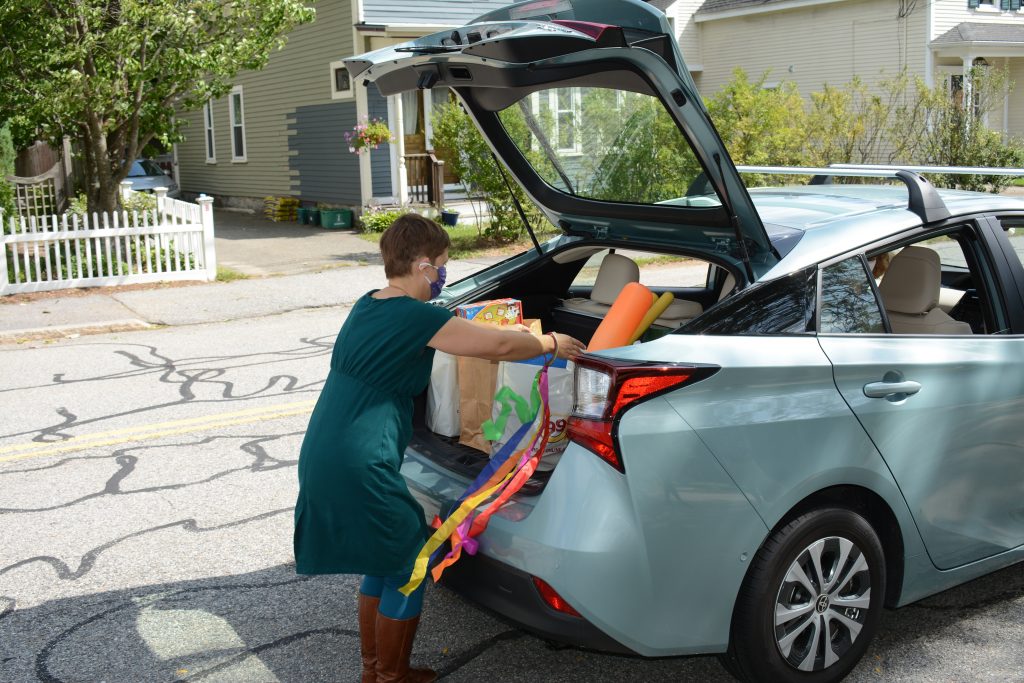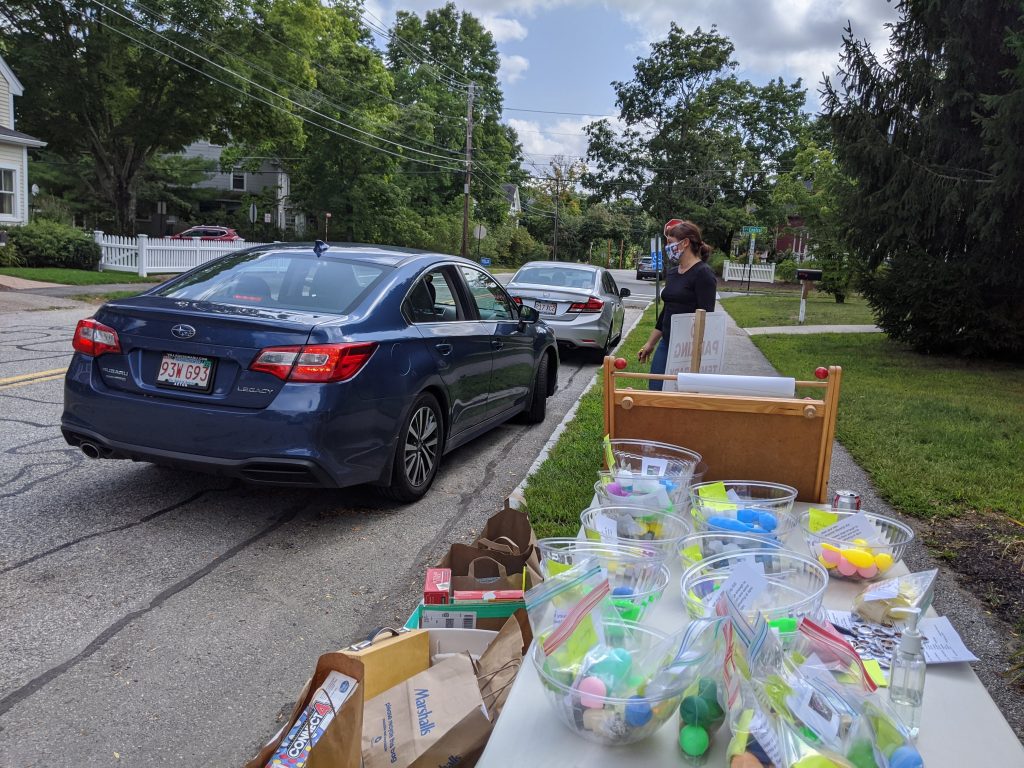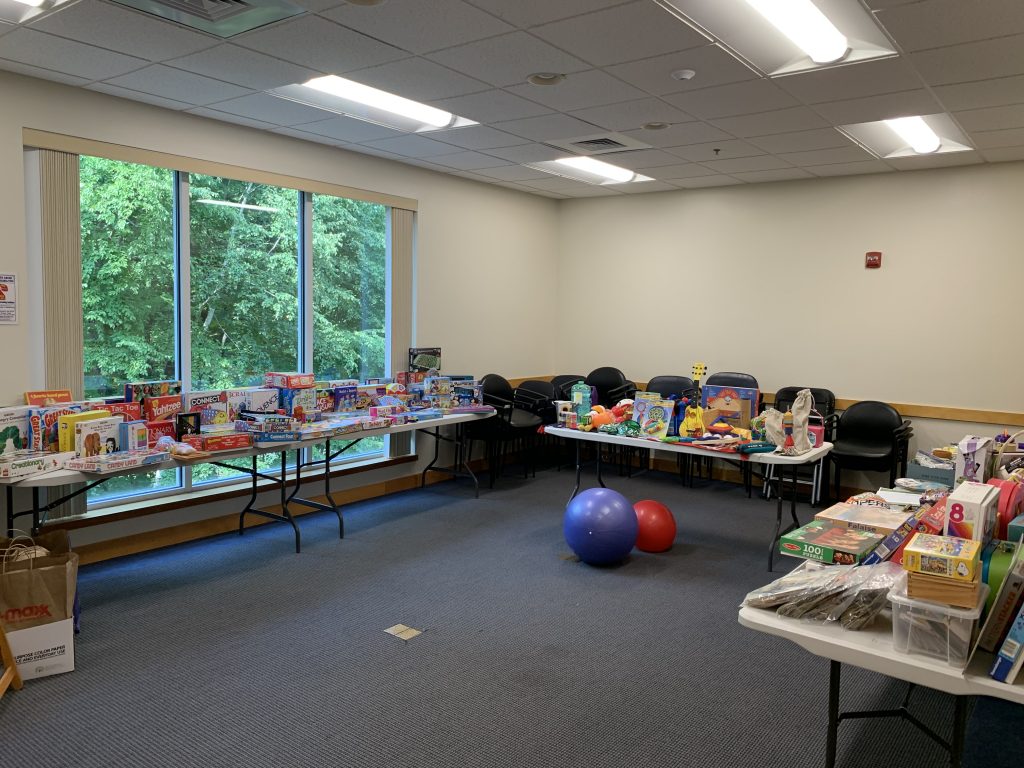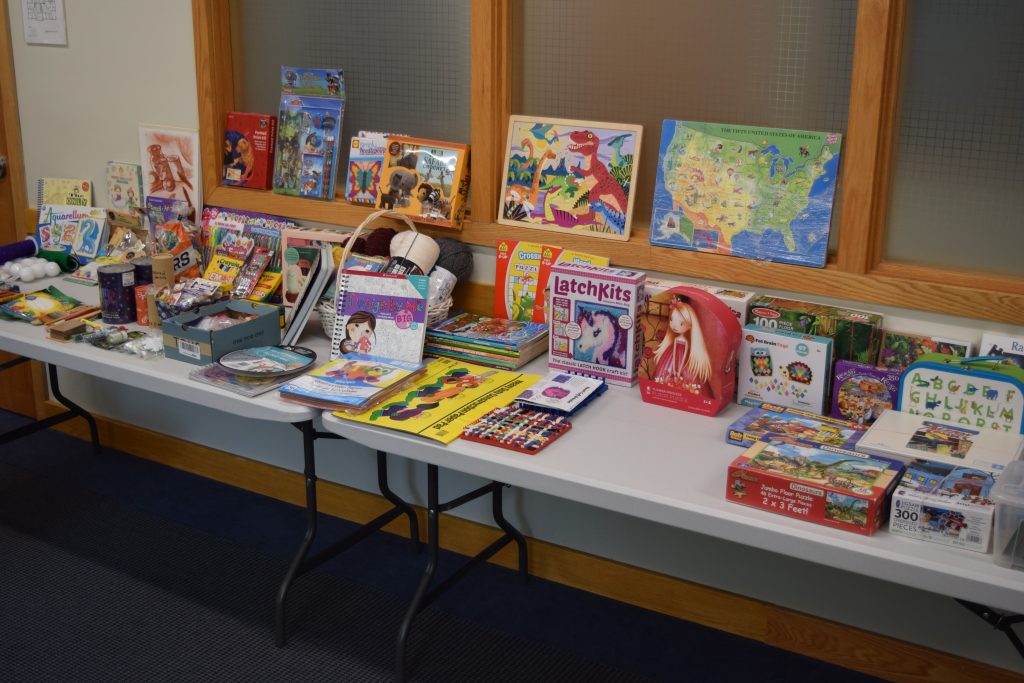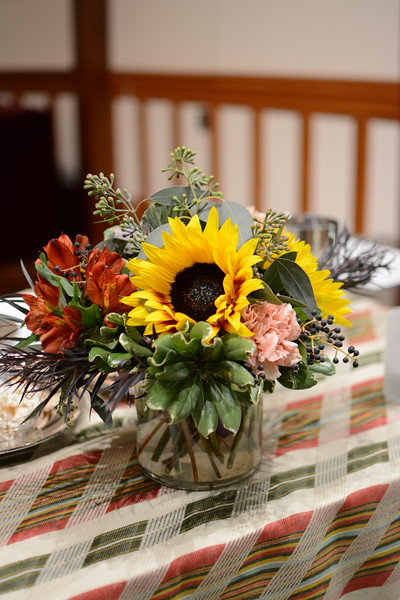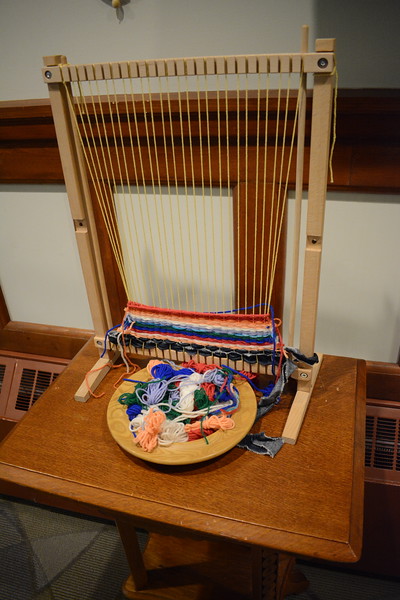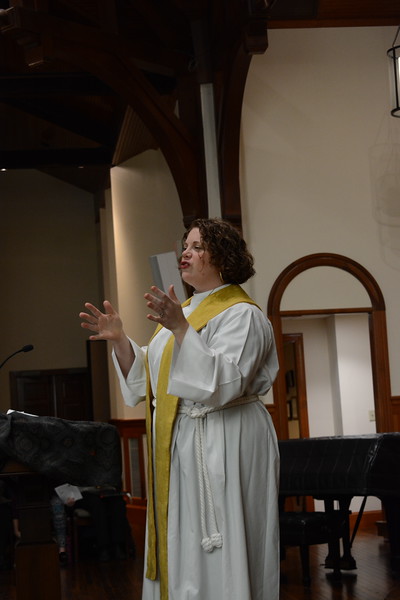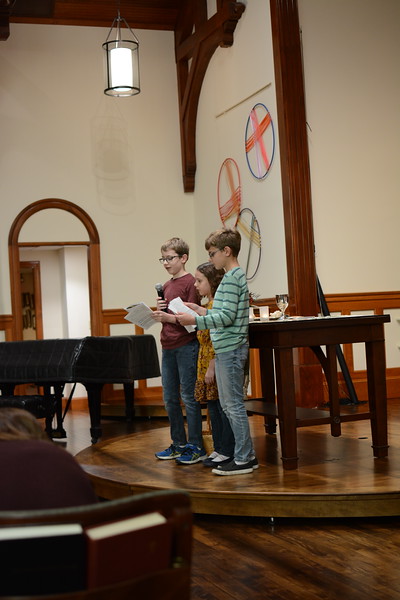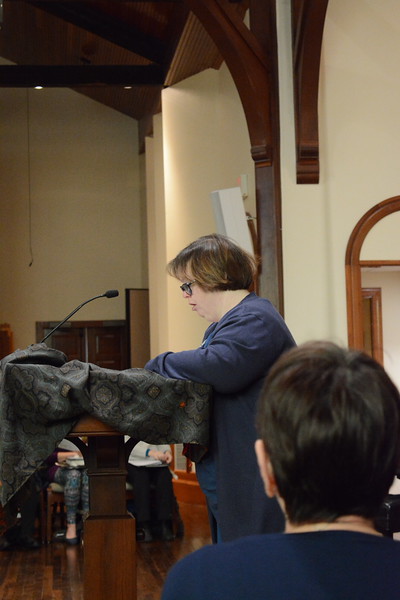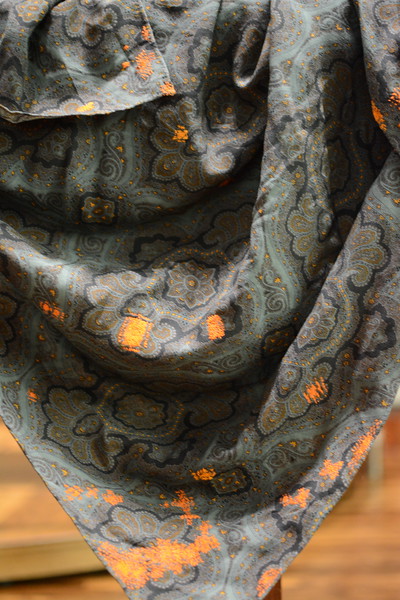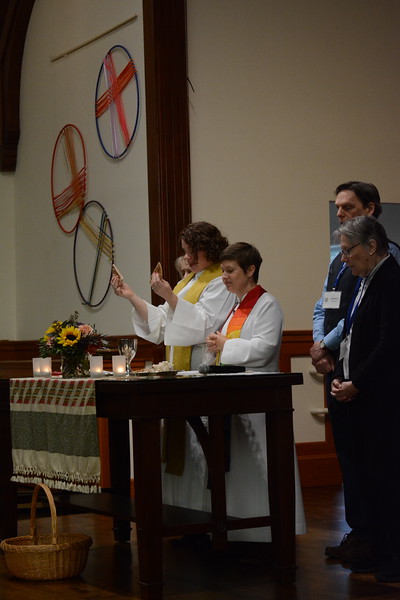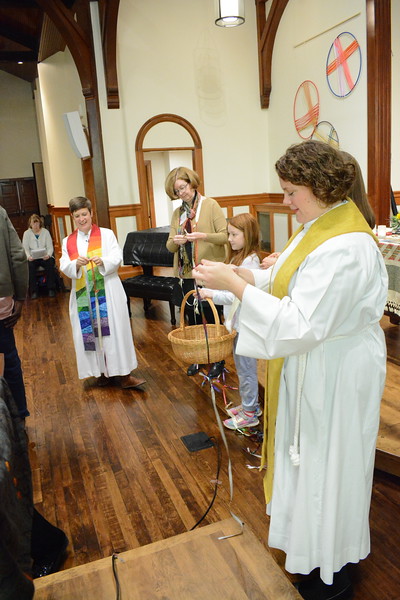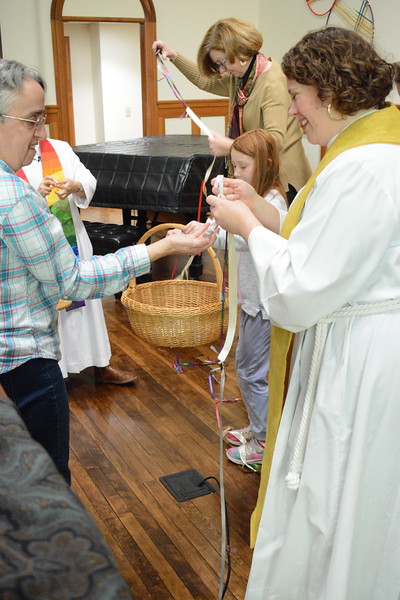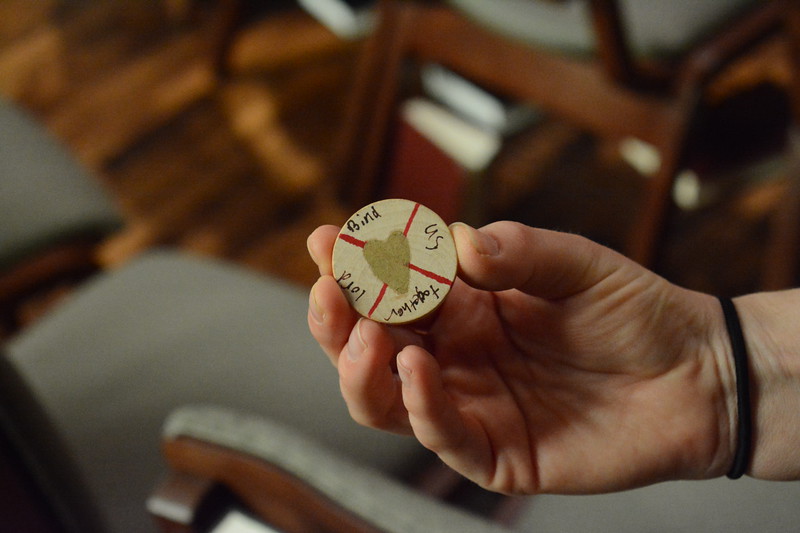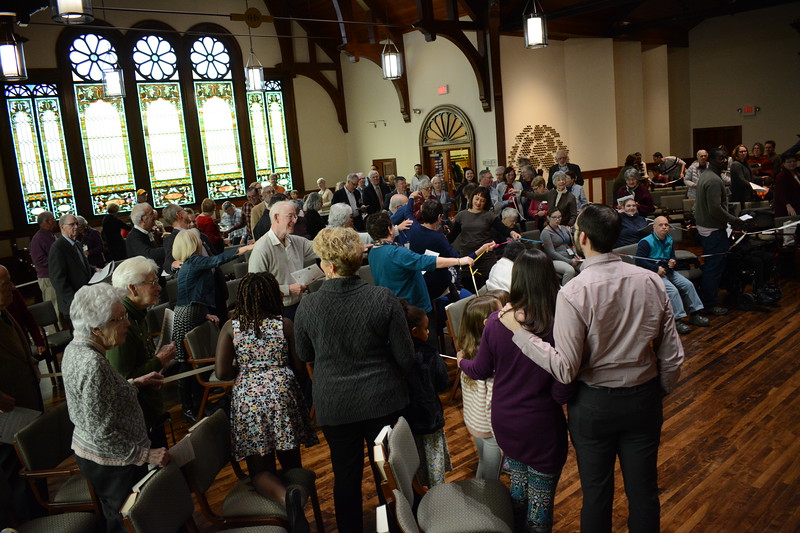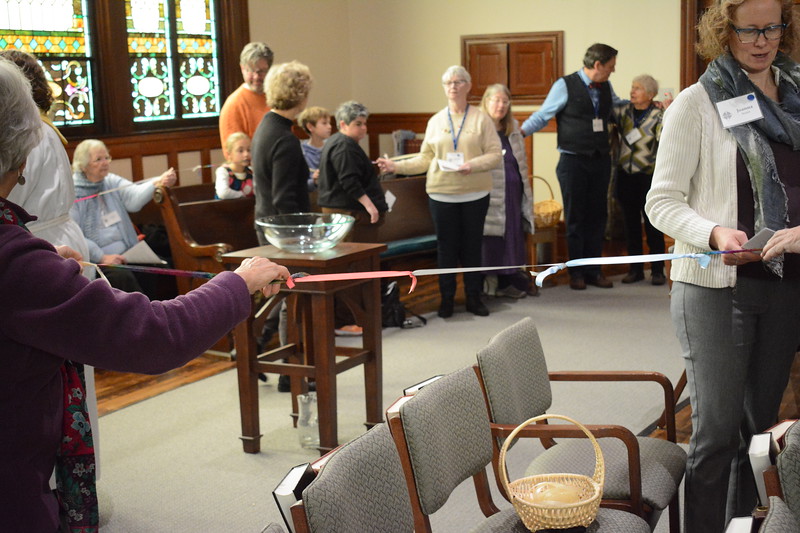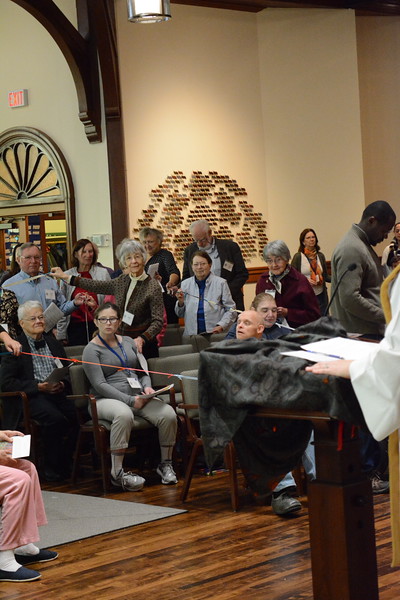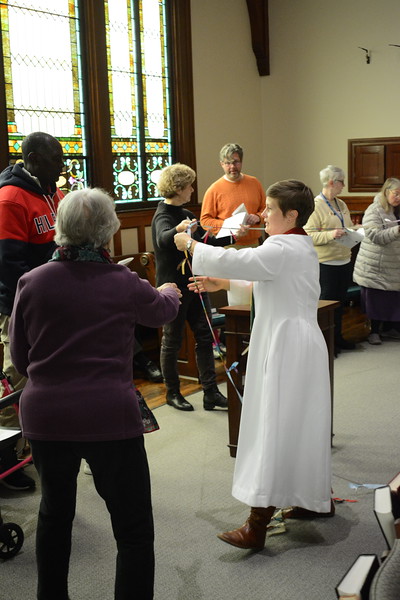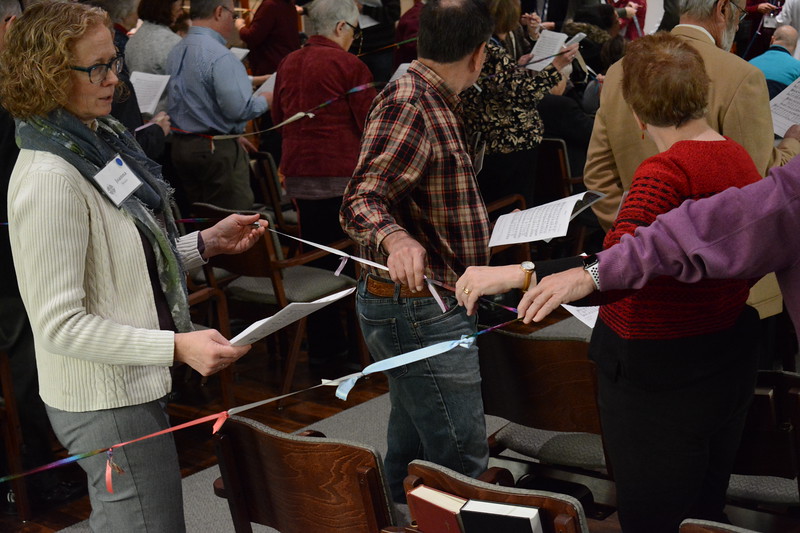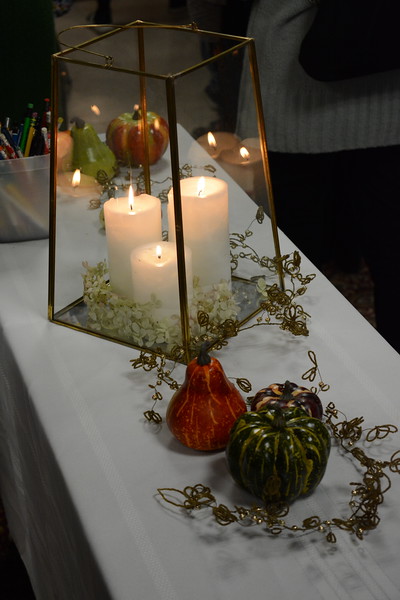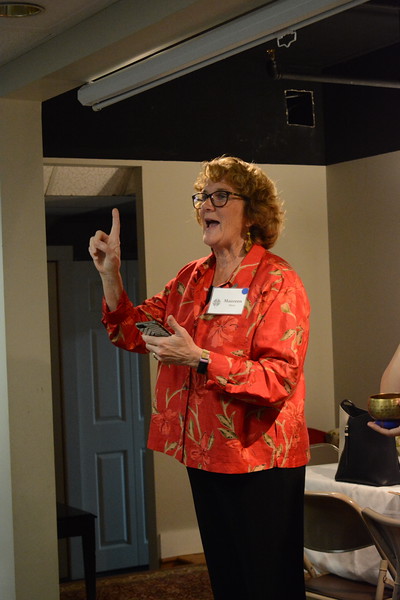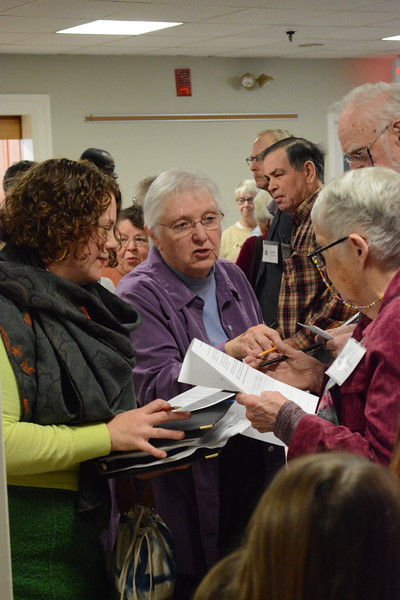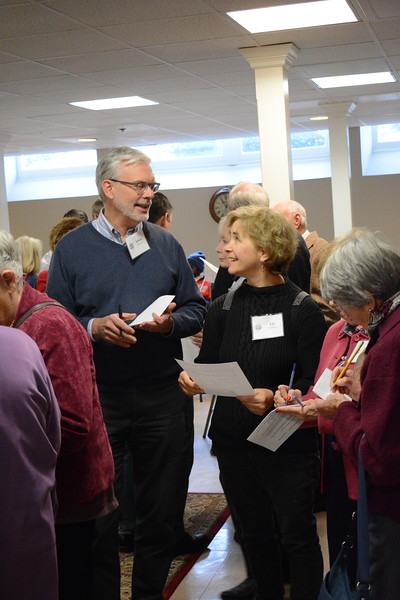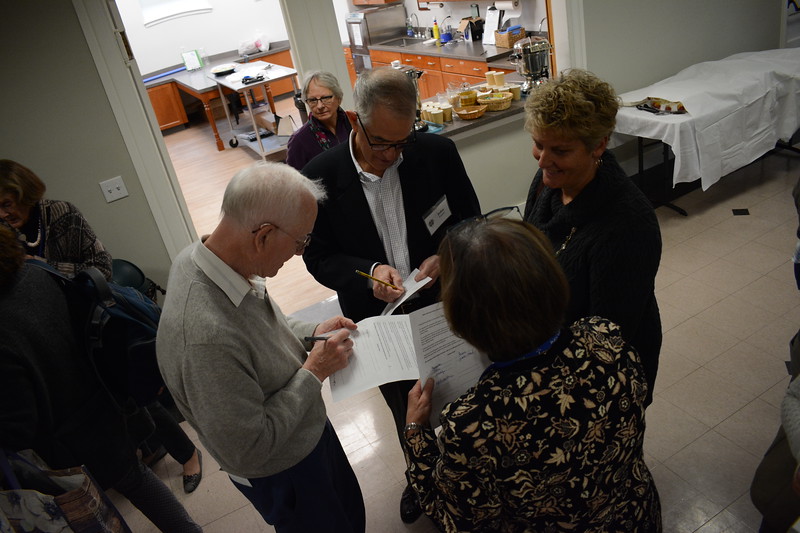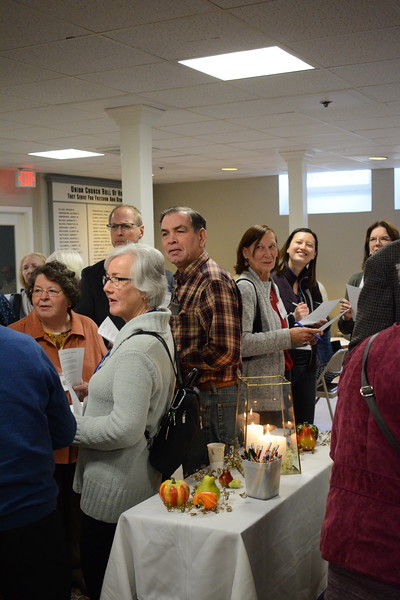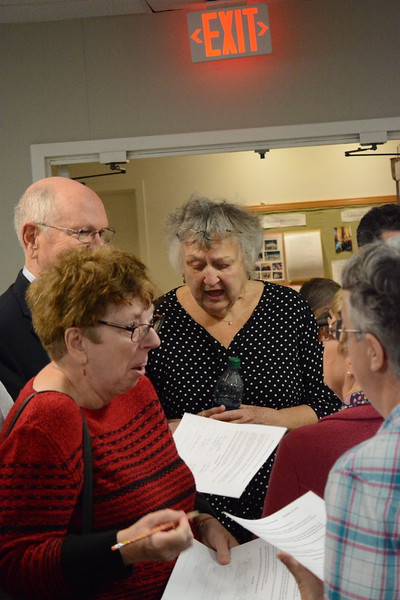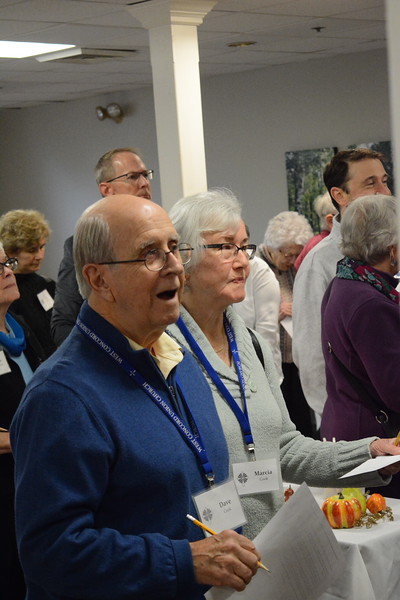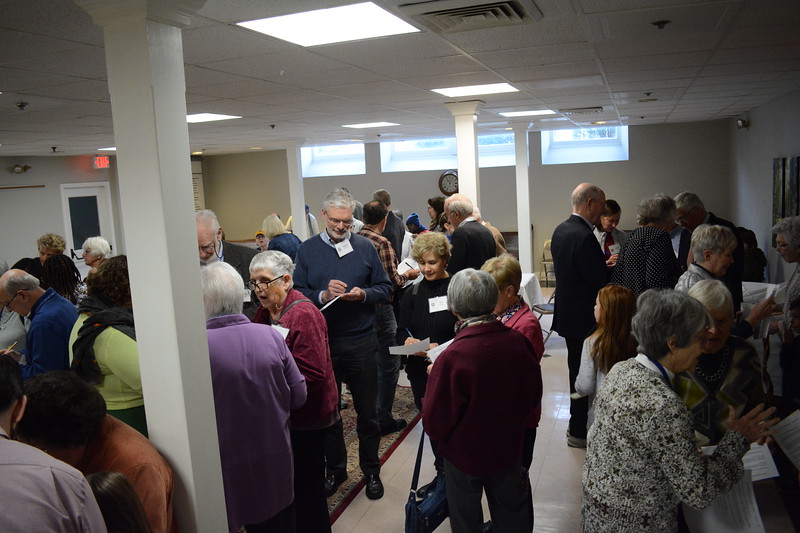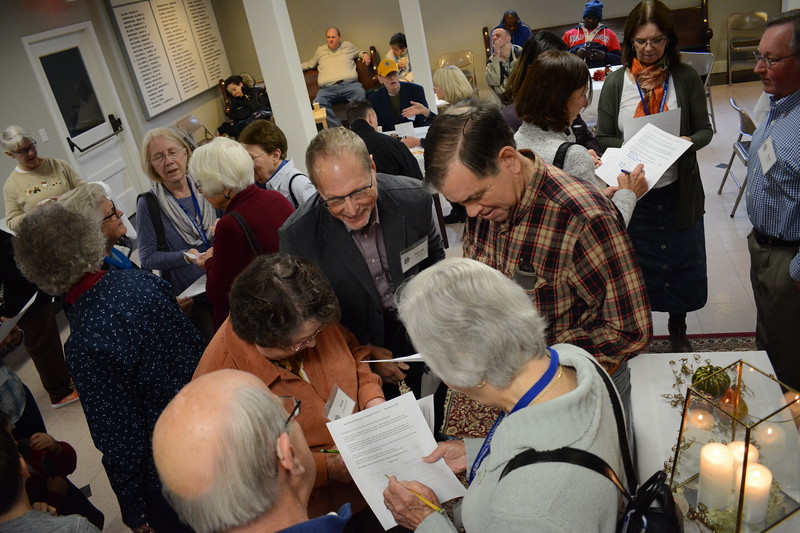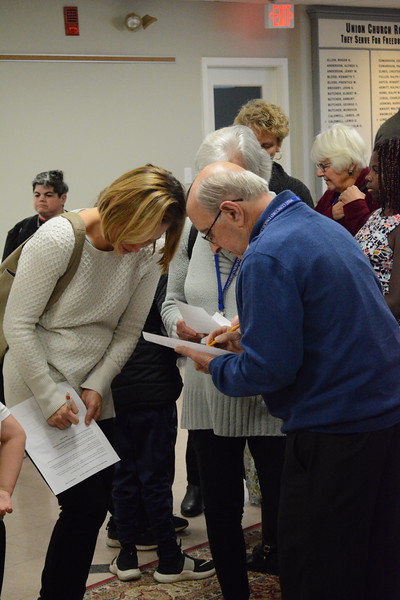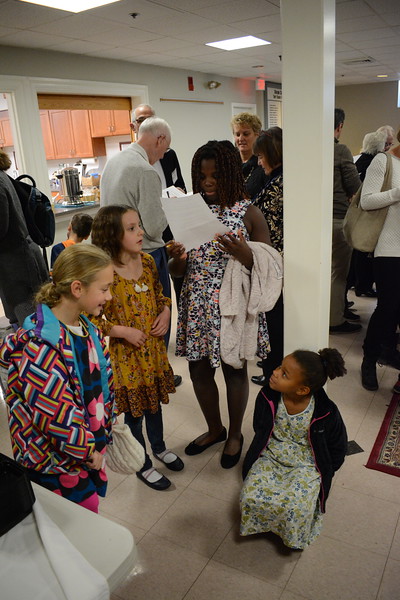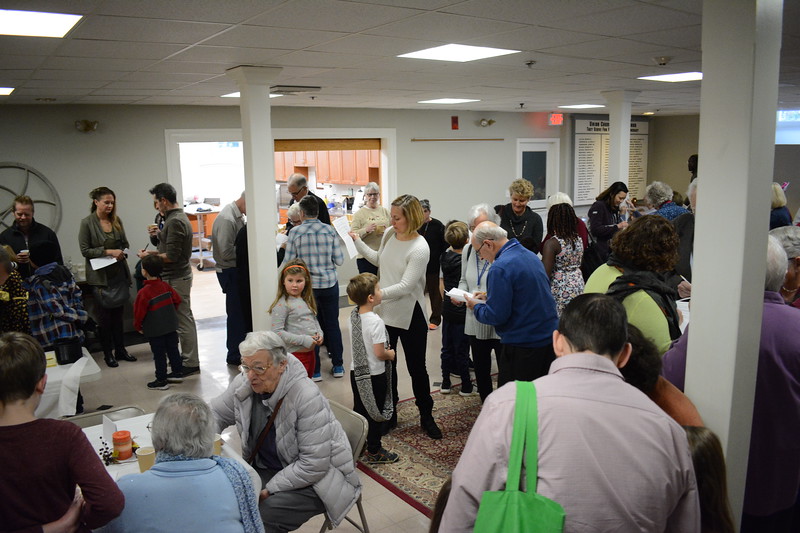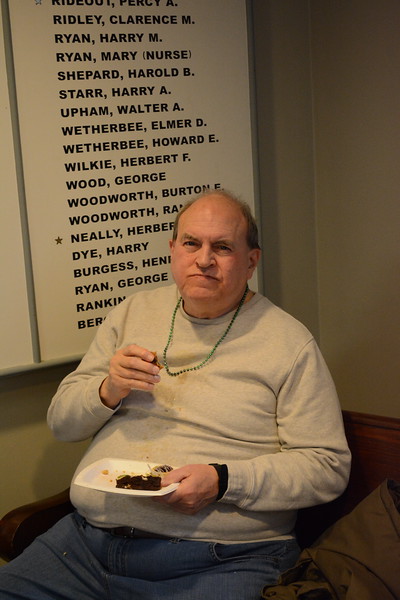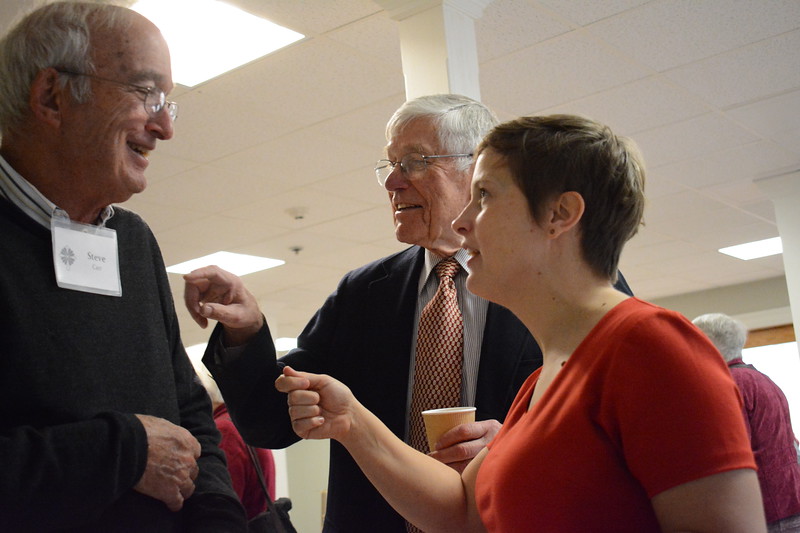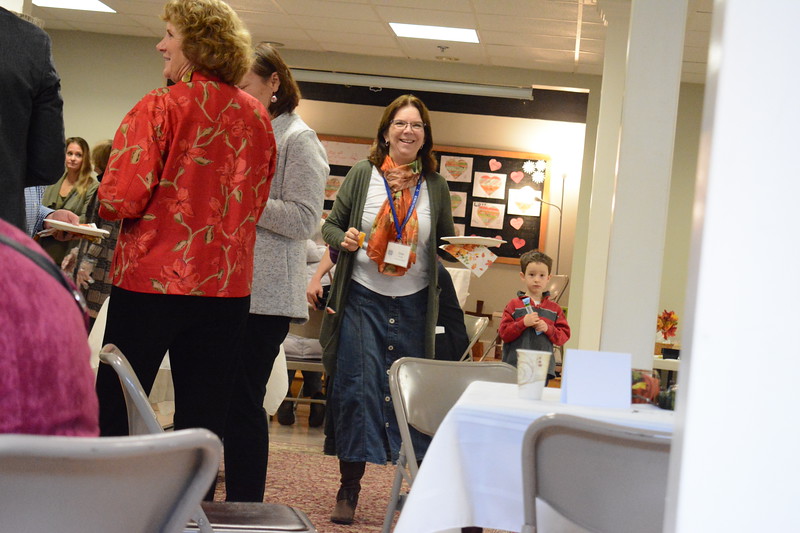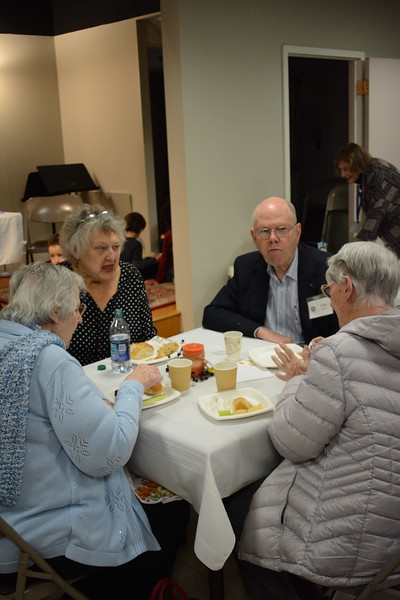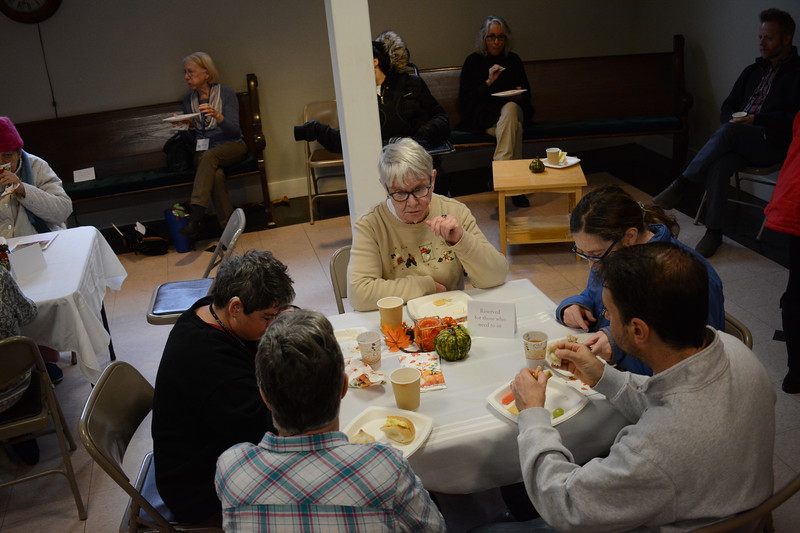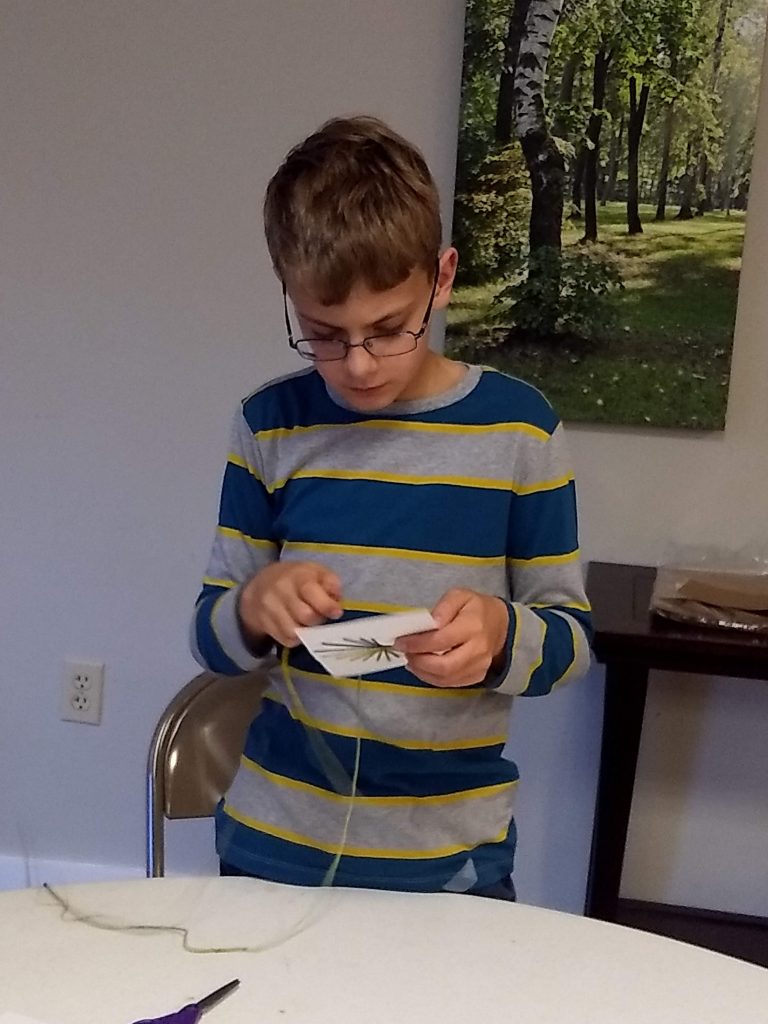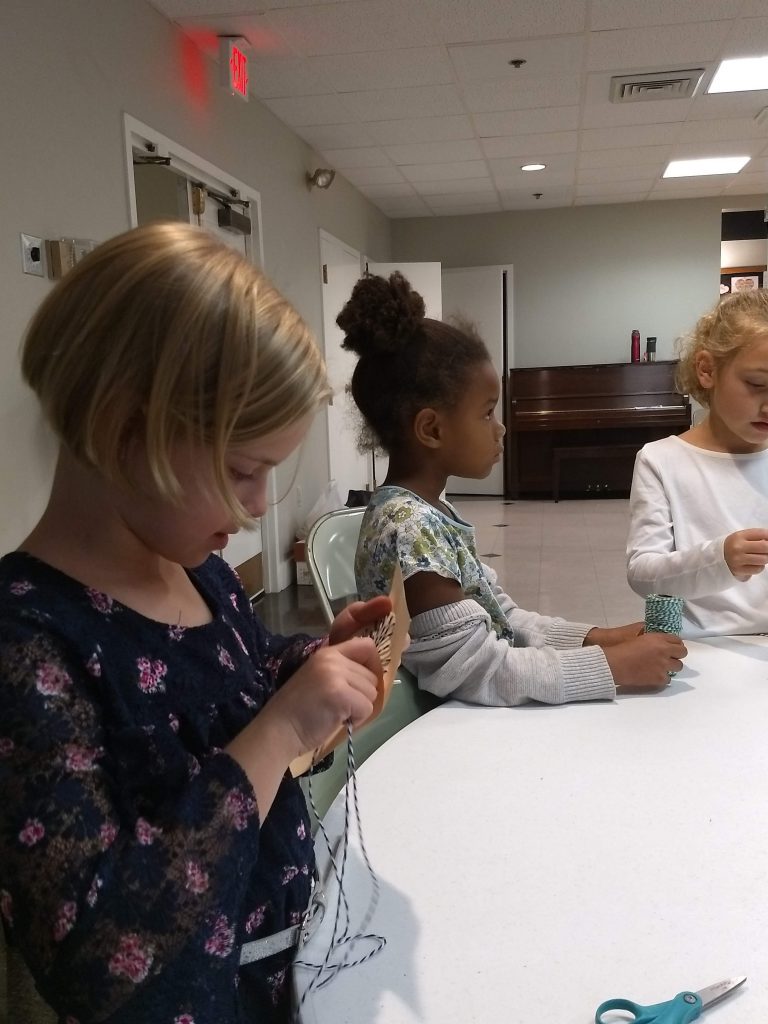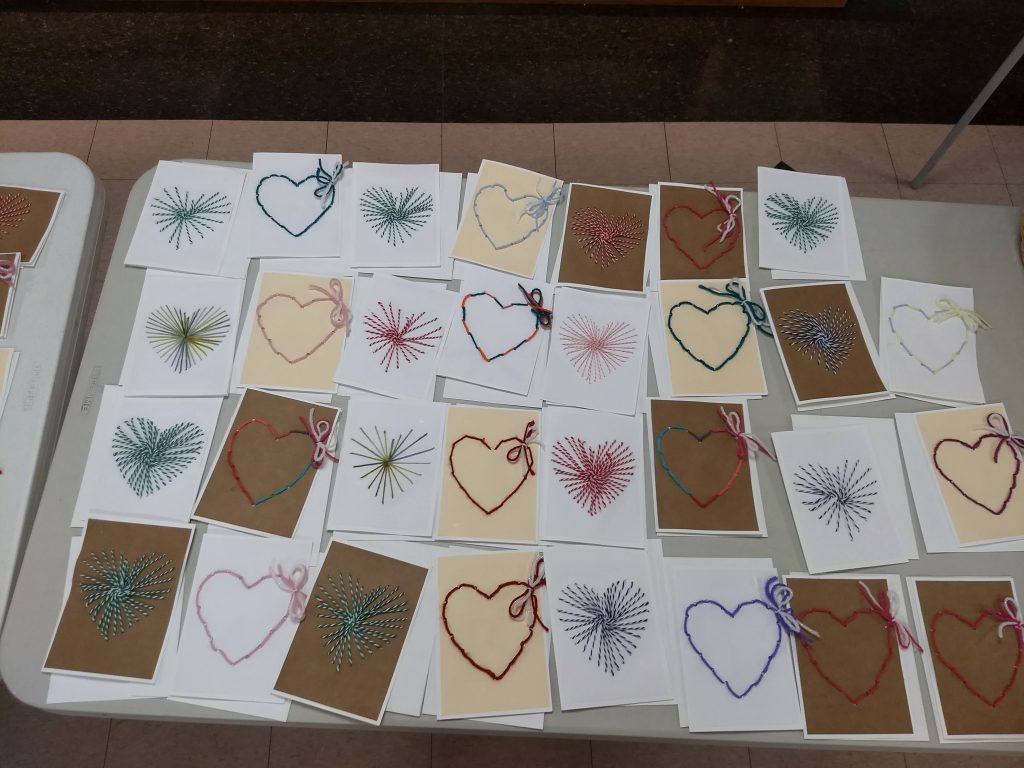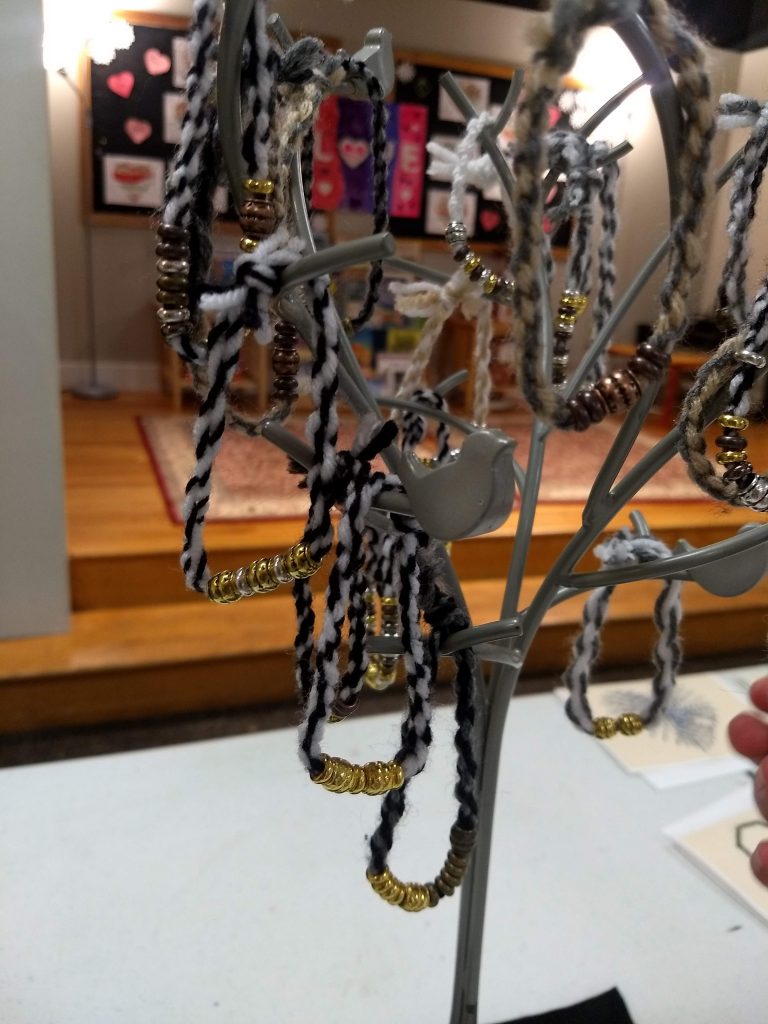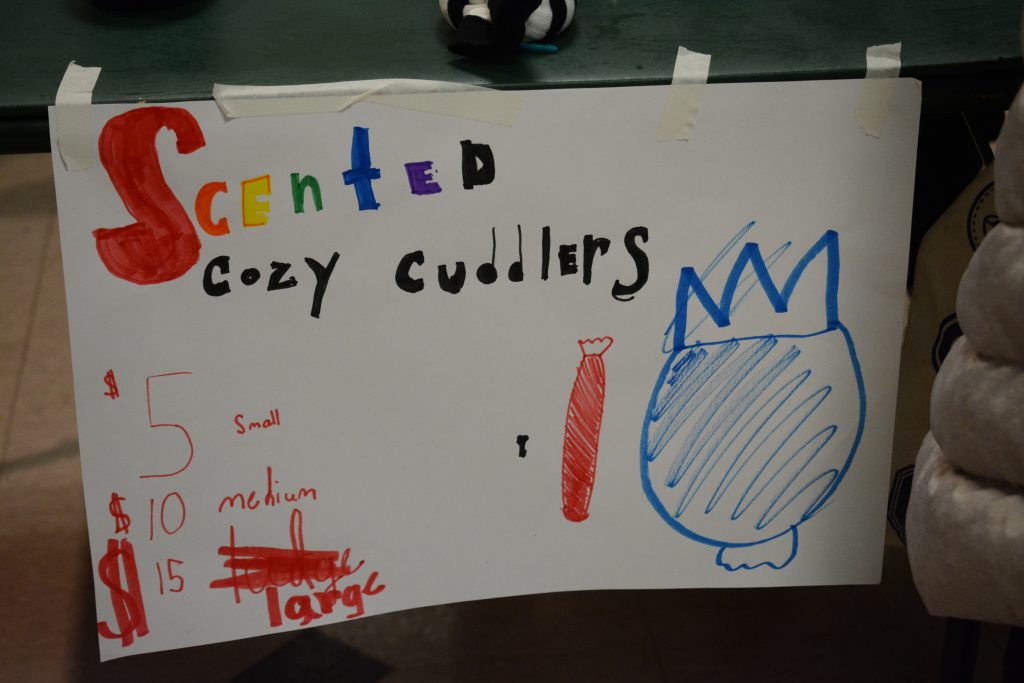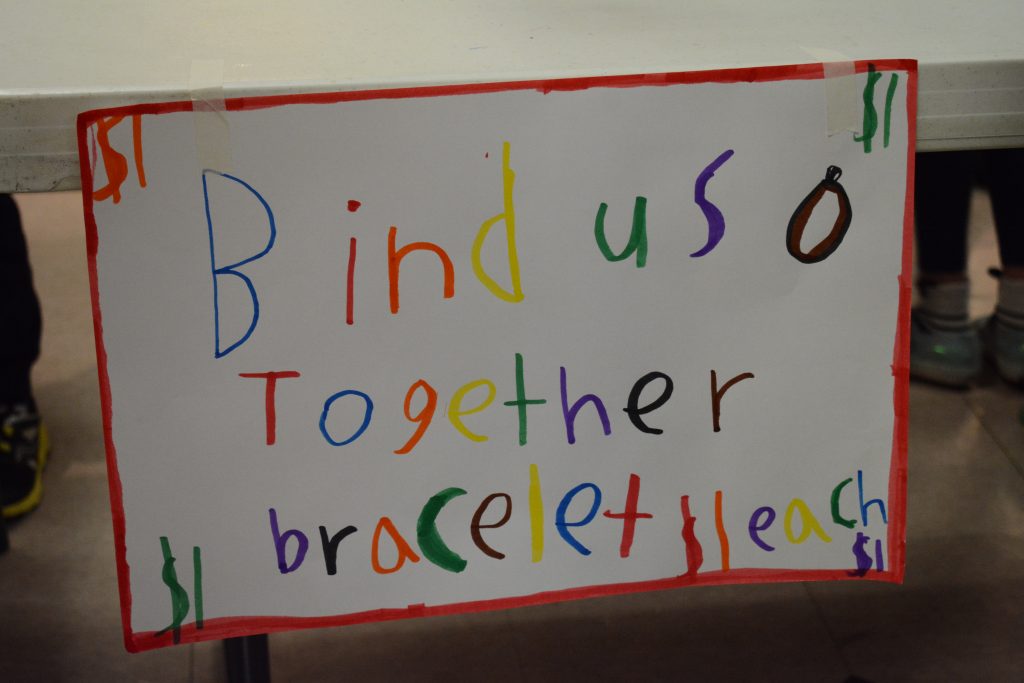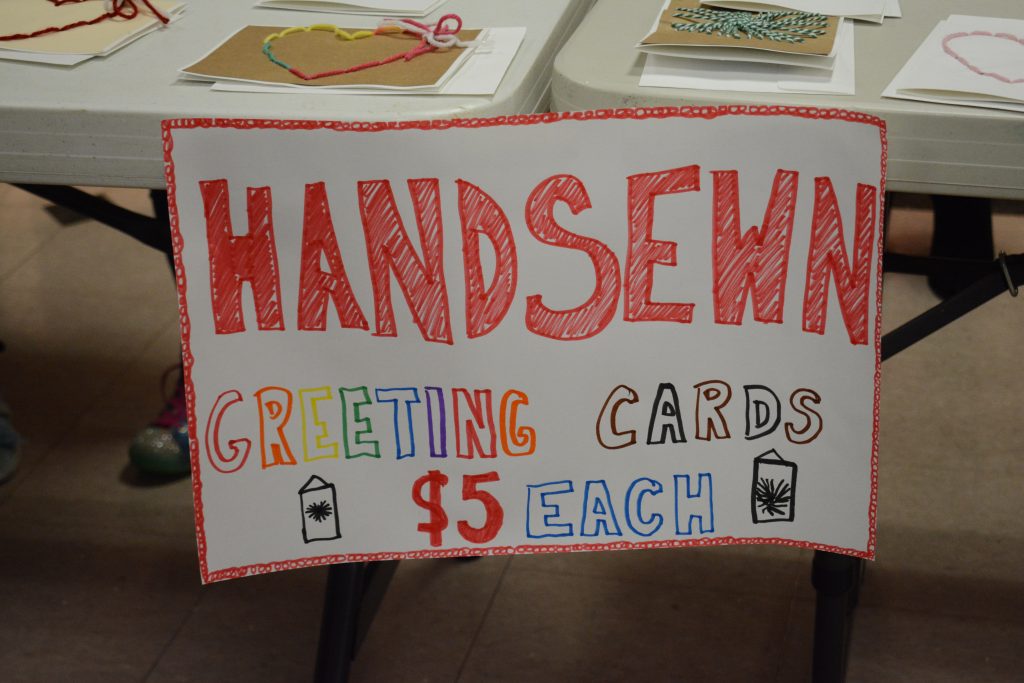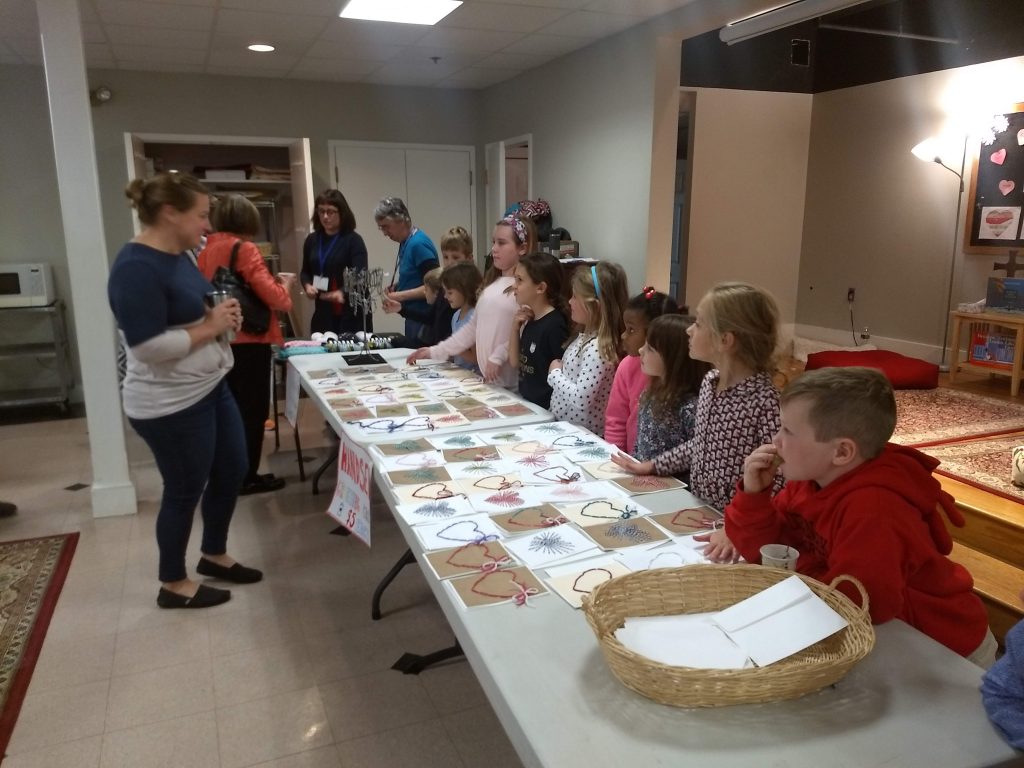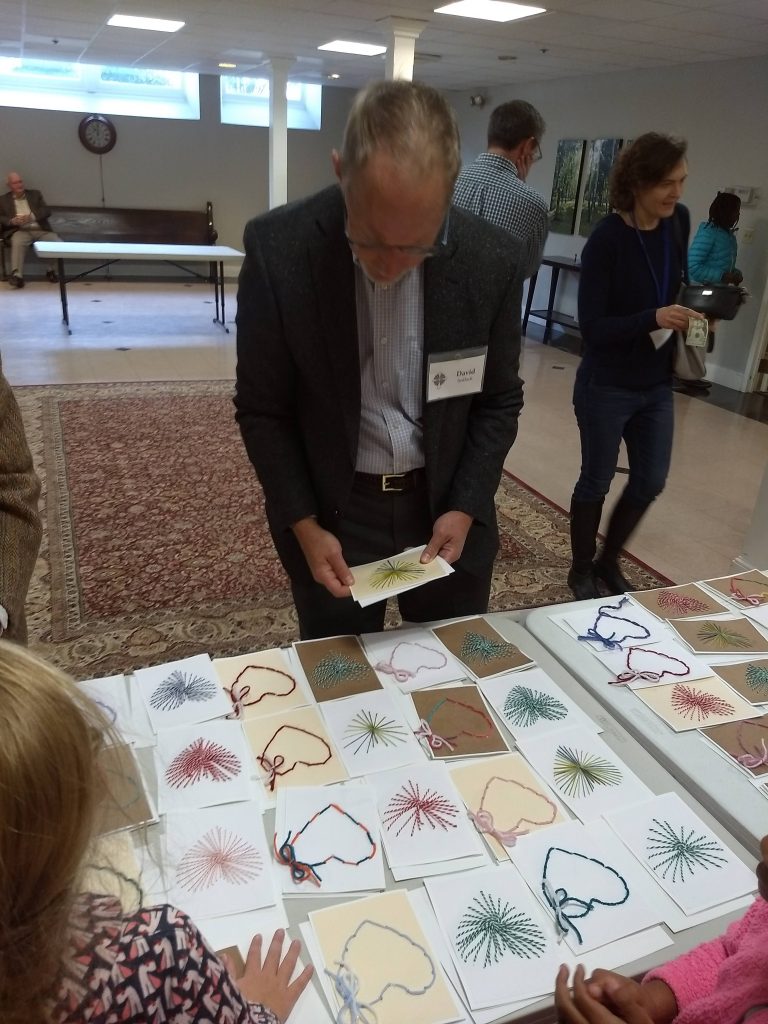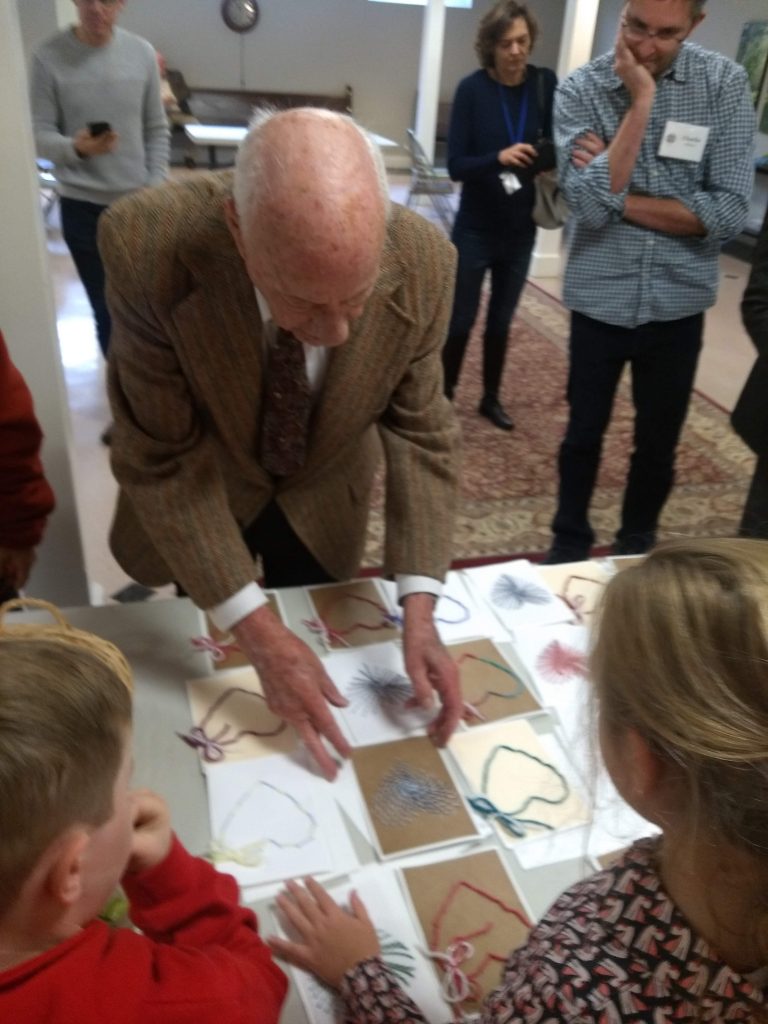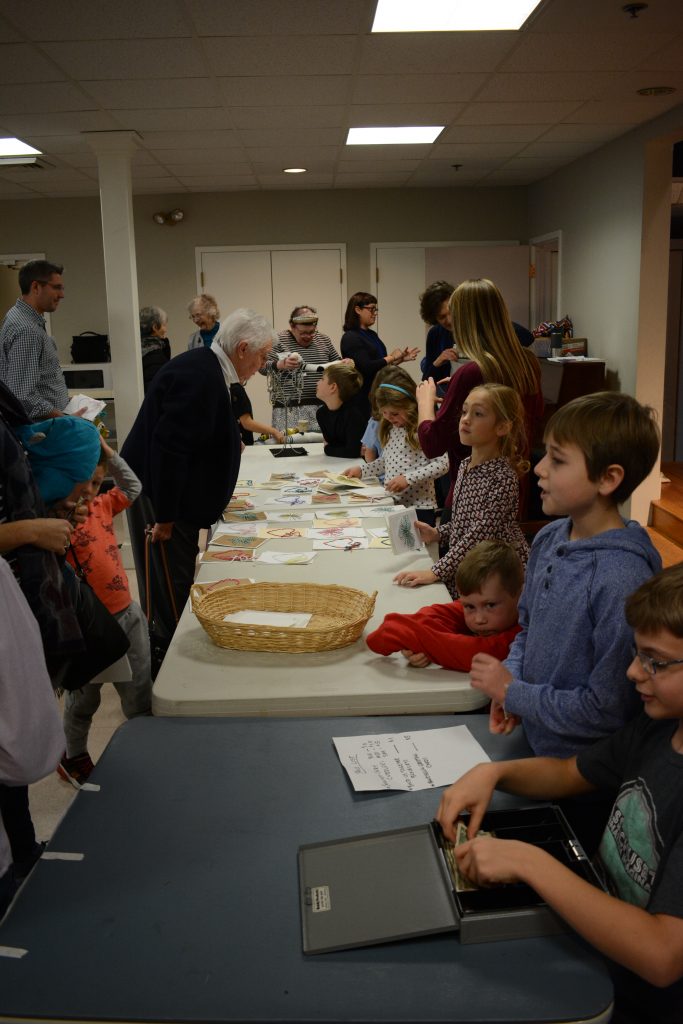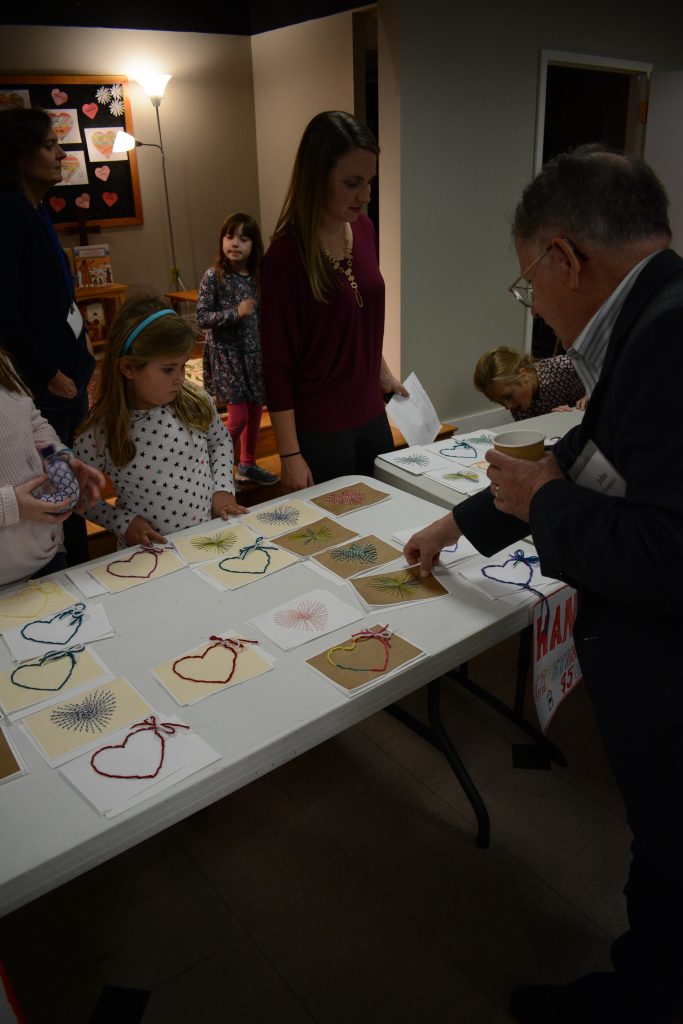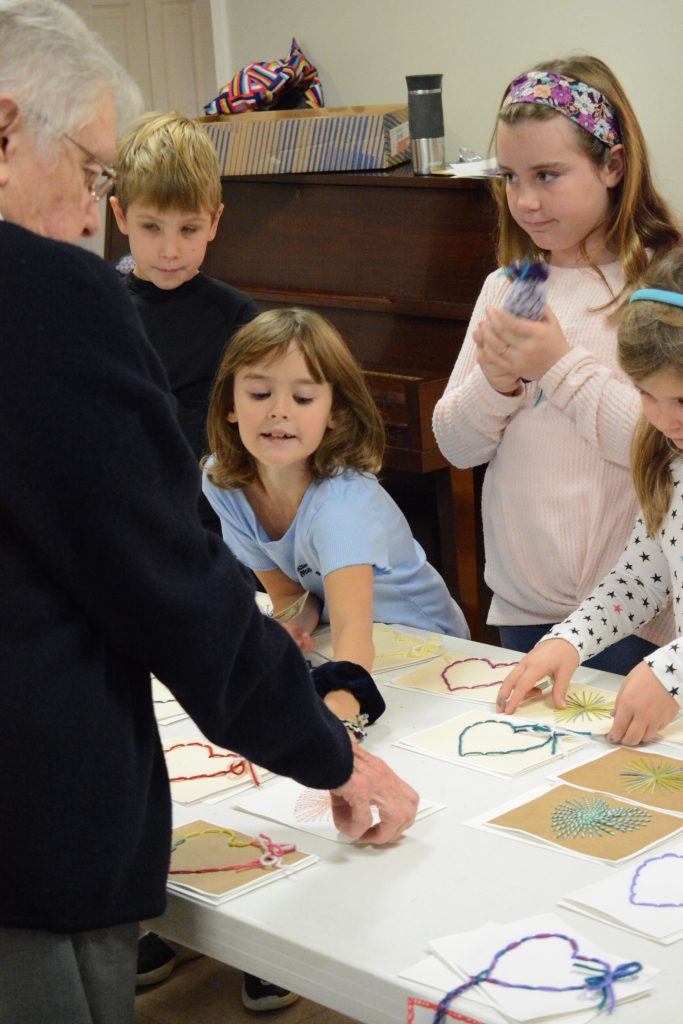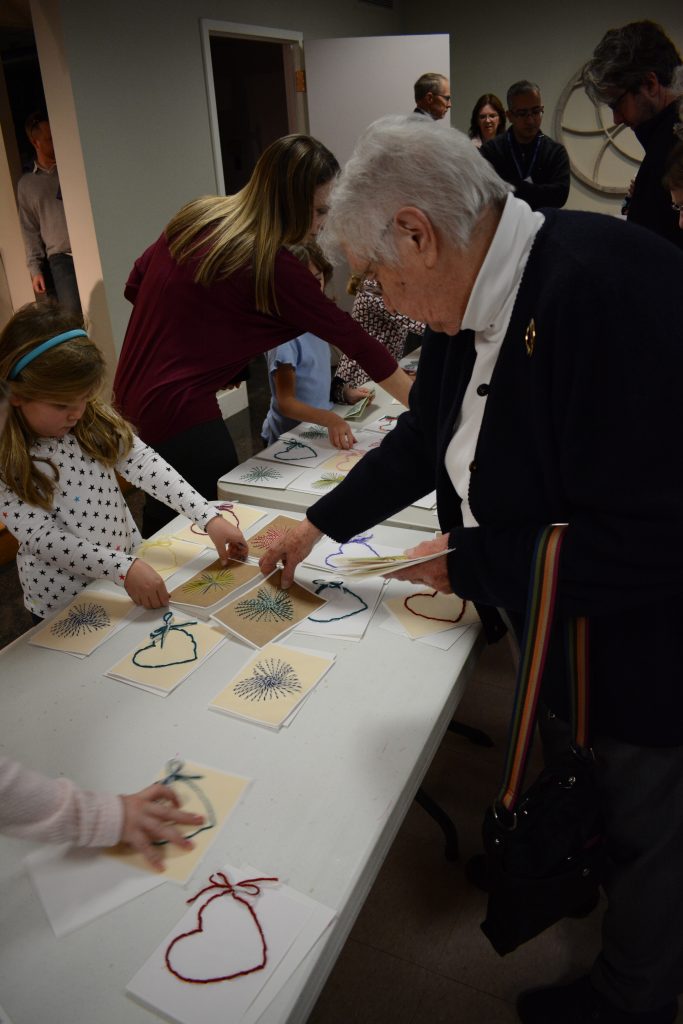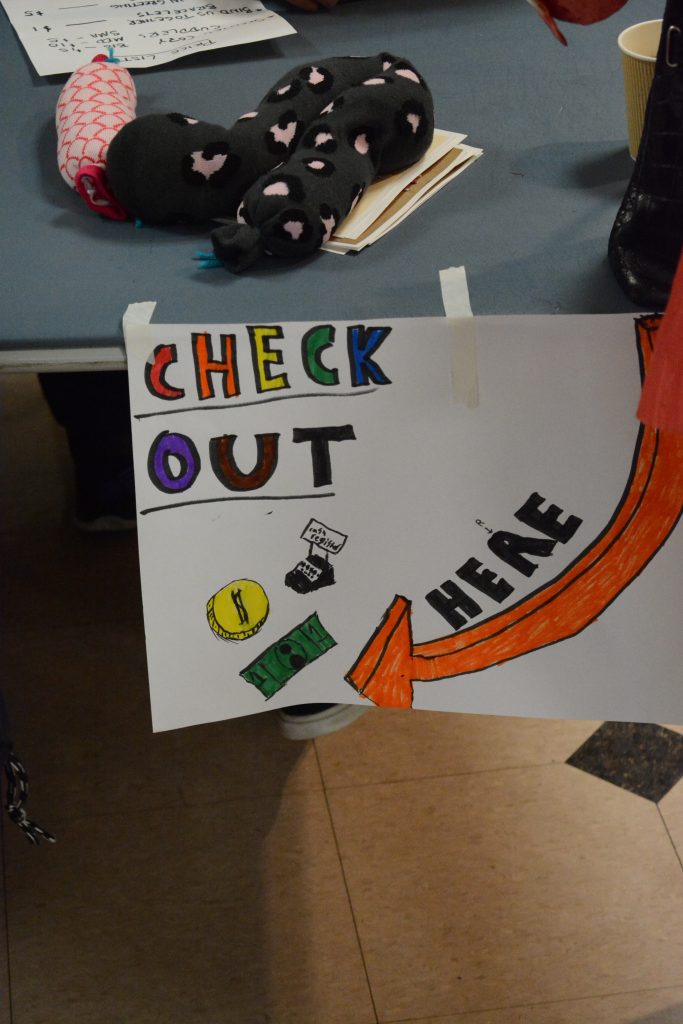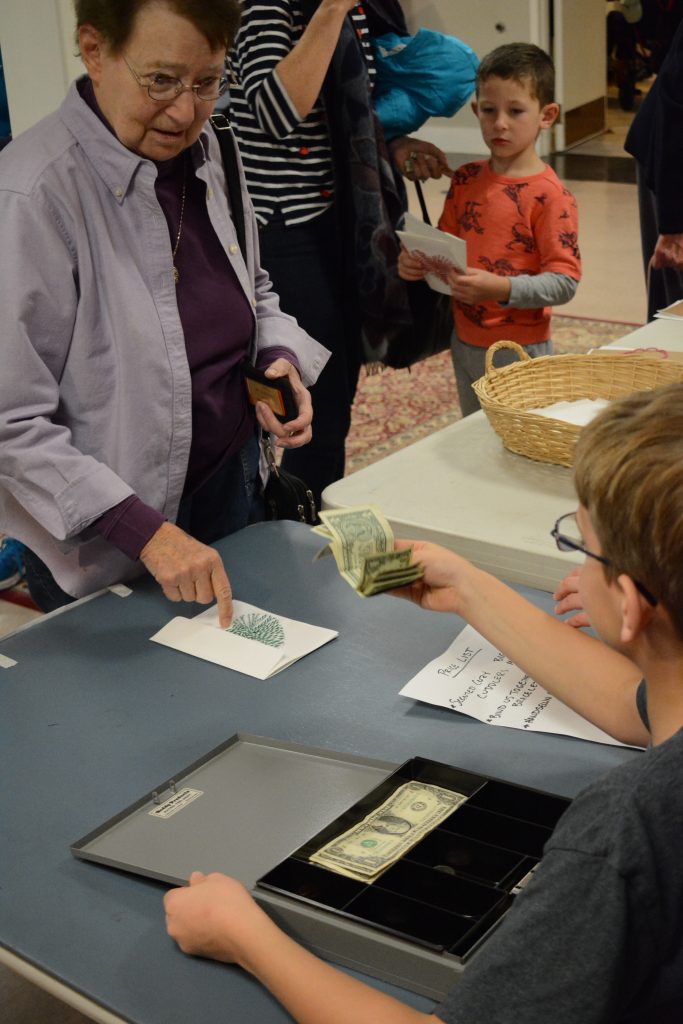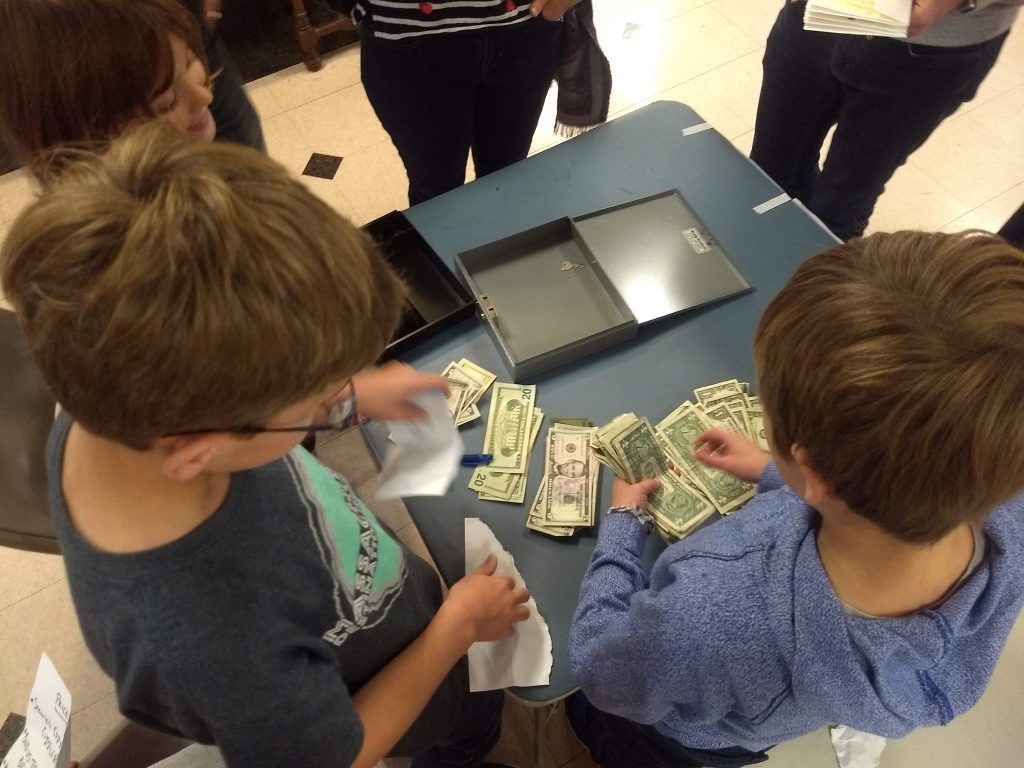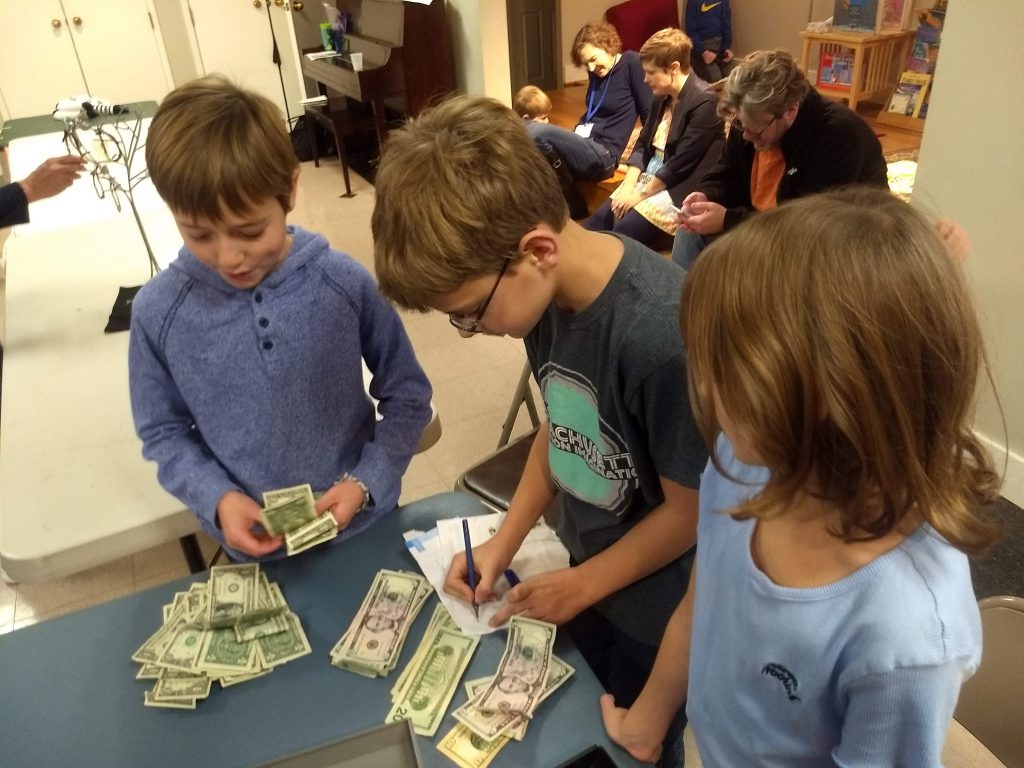A Sermon on the Book of Ruth
Posted in Giving
Finding Joy in Giving
On November 22nd, several members of WCUC shared their reflections on giving: who taught or inspired them to give, why they give to WCUC, and when giving brings them joy!
The Love Poured In!
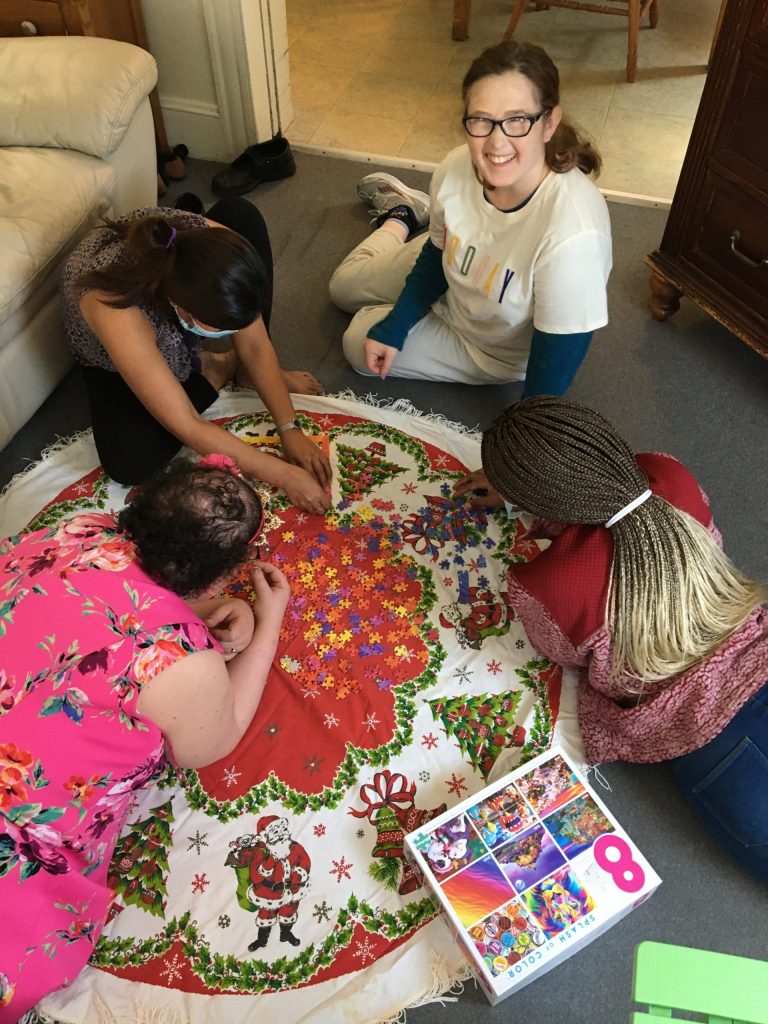
Thank you to everyone who donated items to Share the Love, a game and craft drive, by West Concord Union Church to benefit Minute Man Arc! We asked and you delivered! Enjoy these awesome photos of the process and the smiles they have producing.
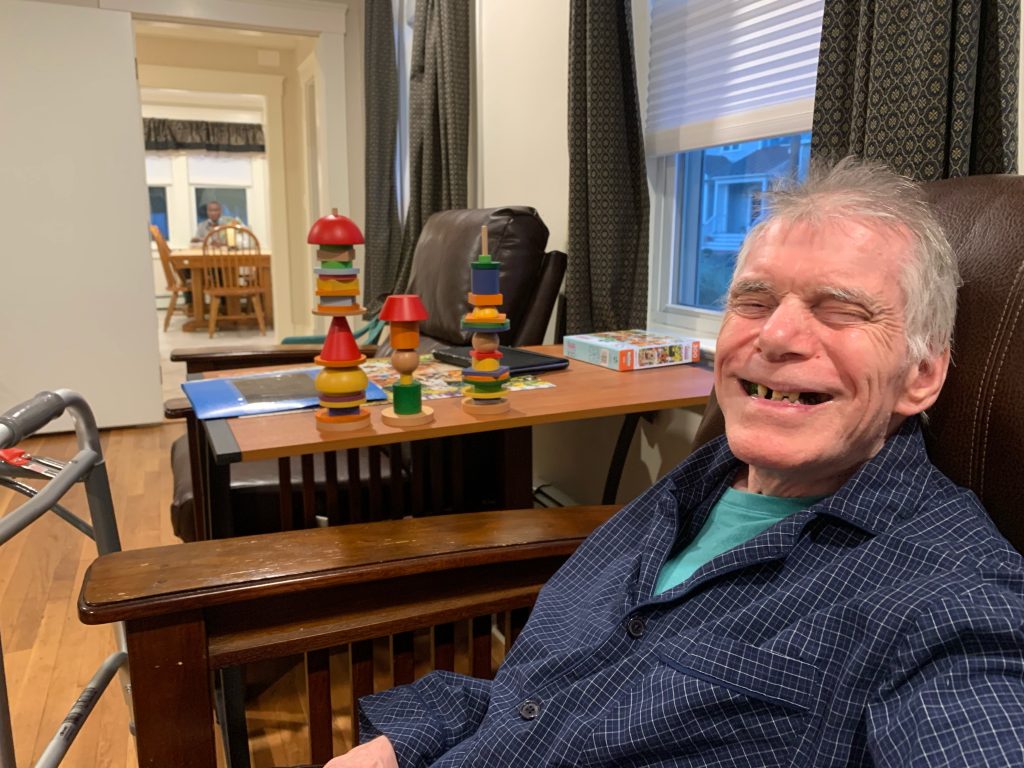
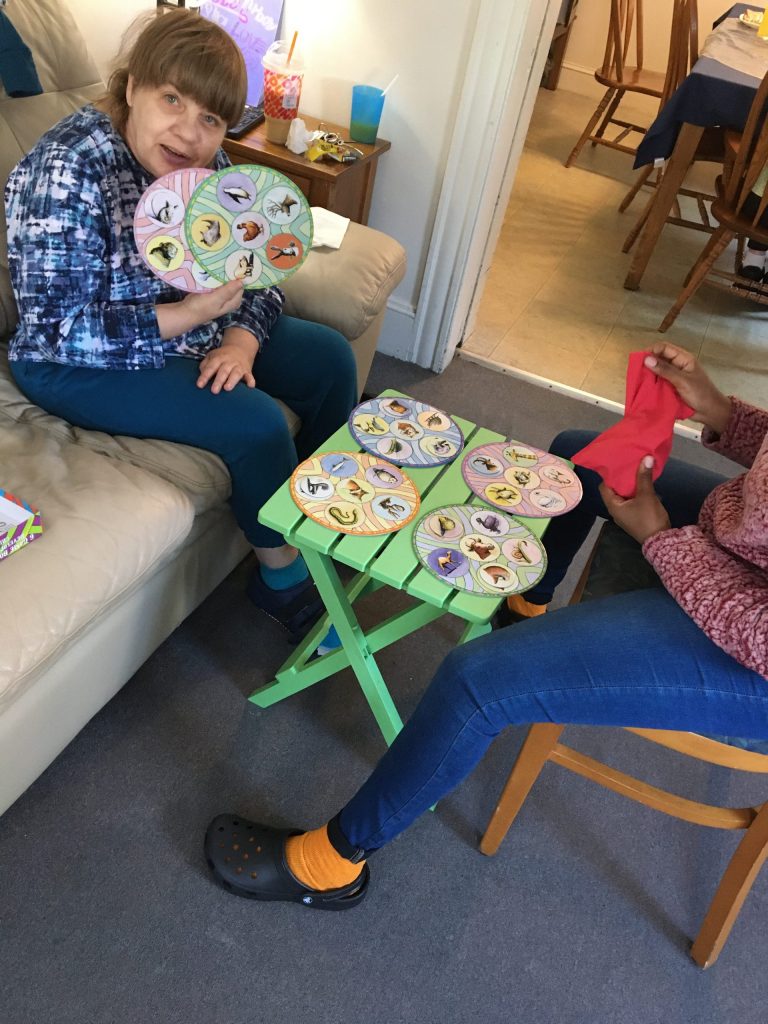
WCUC Builds with Habitat!
We are overwhelmed with gratitude for all the members and friends, old and new, young and not-so-young, who all came together to raise money for affordable housing in our church’s neighborhood. We set some big goals: 60 individuals or households giving, and a $20,000 total gift. Thanks to your generosity, we exceeded both of our goals with 92 givers and $29,067.29! Here are some photos of the offering collection and dedication. Stay tuned for opportunities to build and plant in the summer and fall…
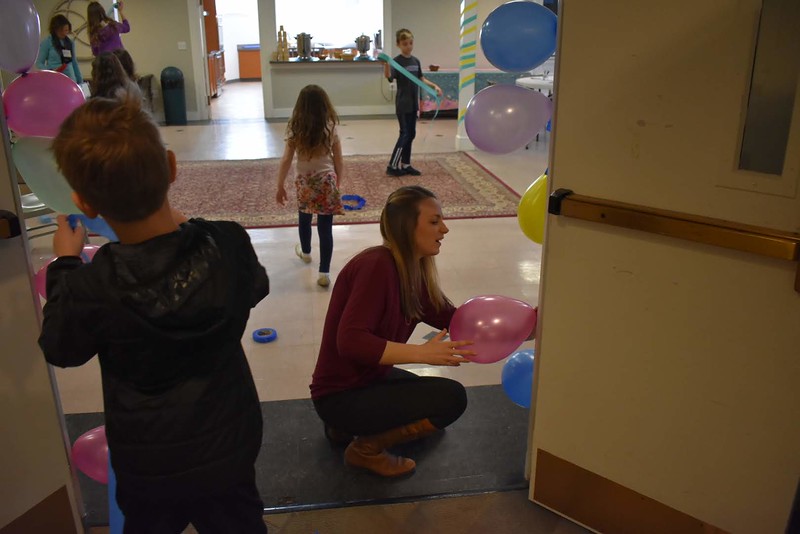
During worship, kids were busy decorating! 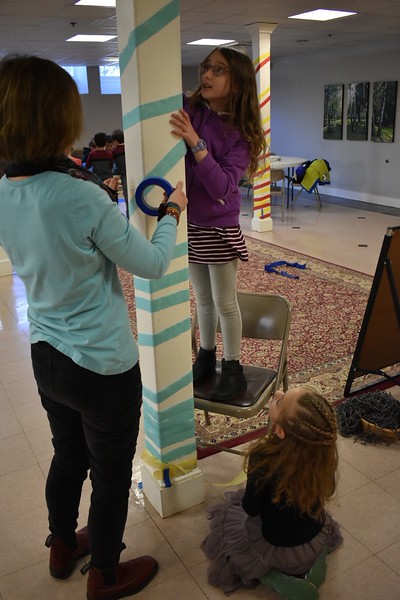
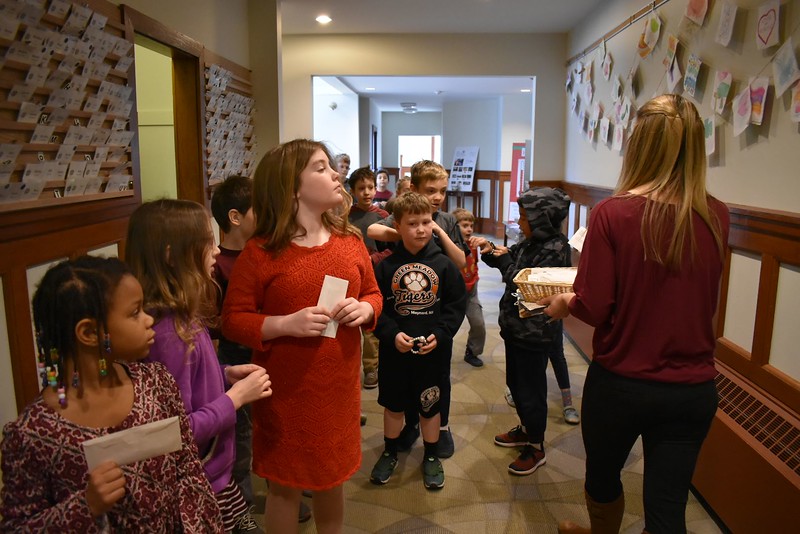
Then they lined up with their gifts to share… 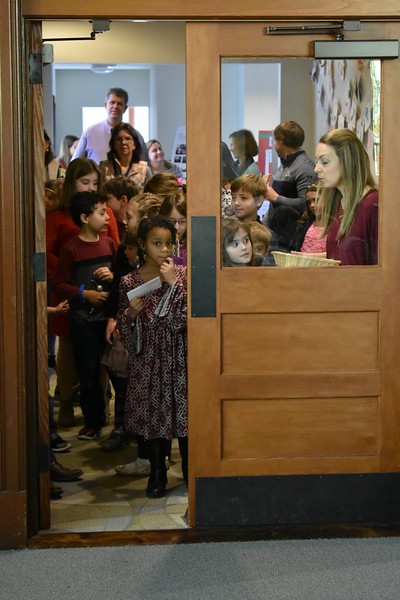
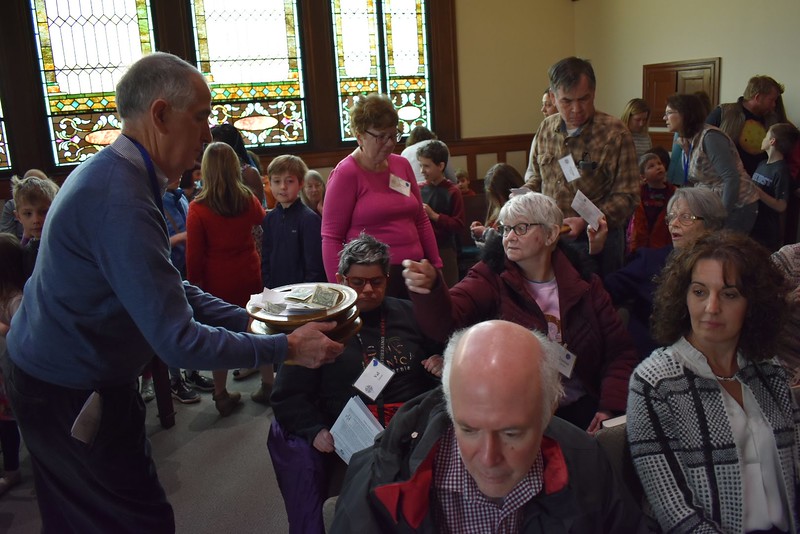
It was a busy morning for the ushers!
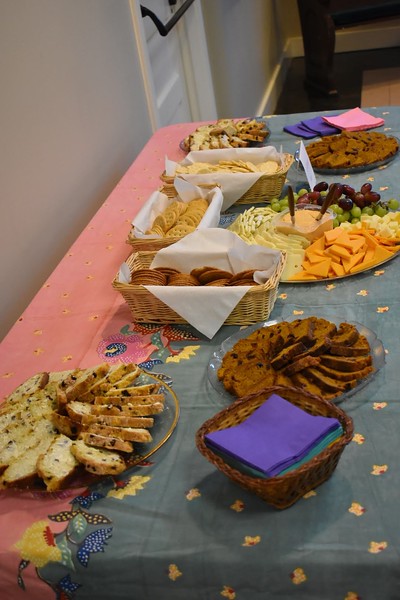
Our Hospitality folks outdid themselves! 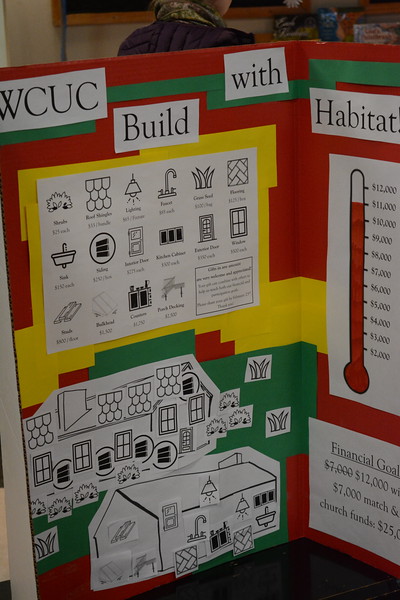
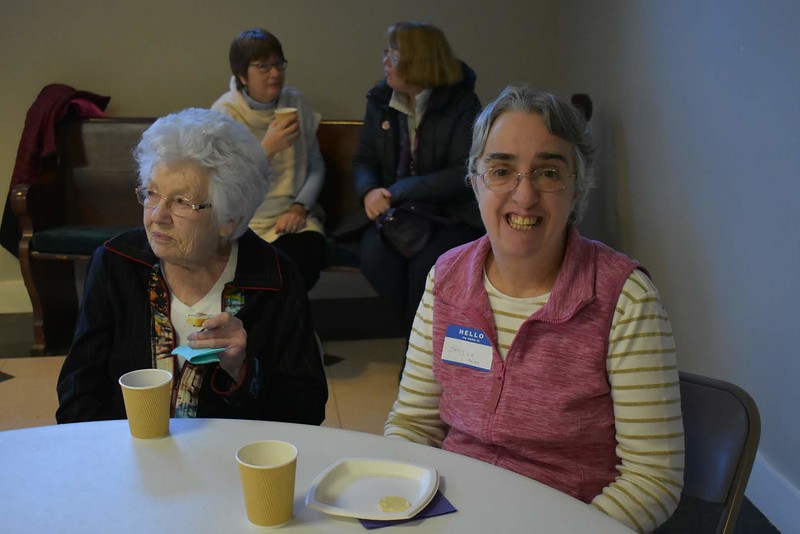
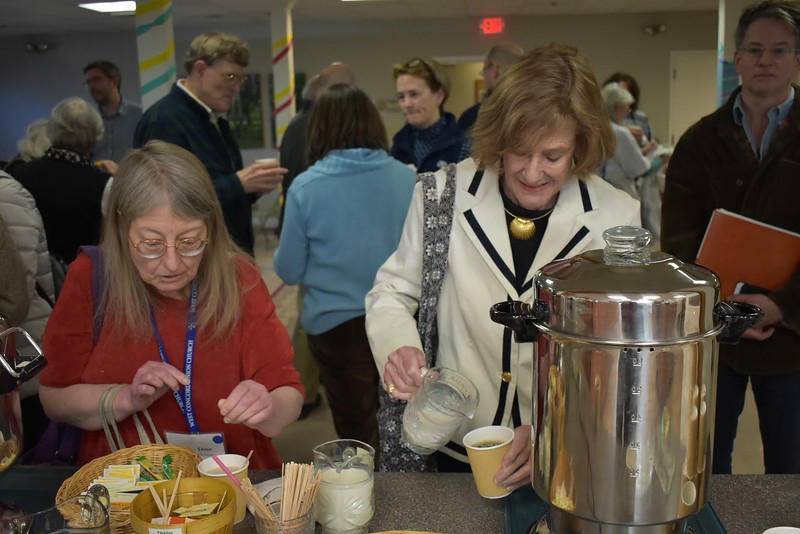
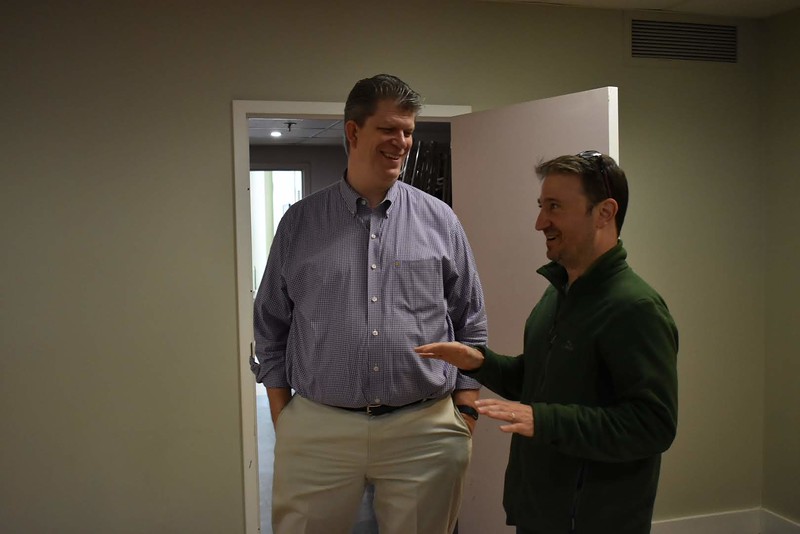
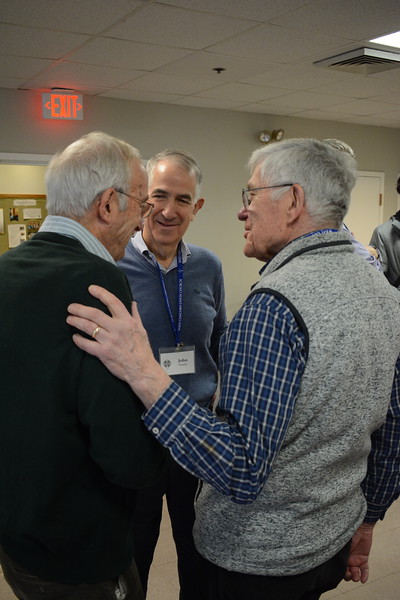
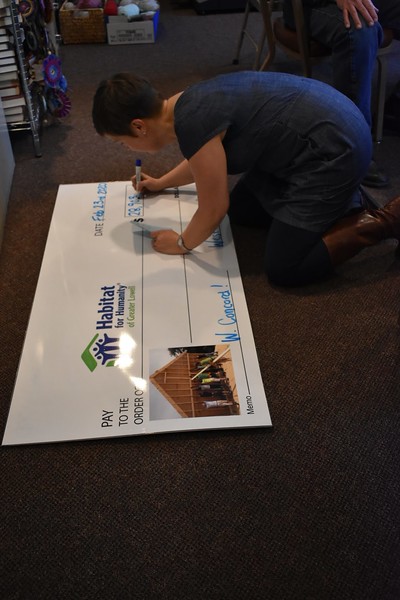
Writing on the big check… 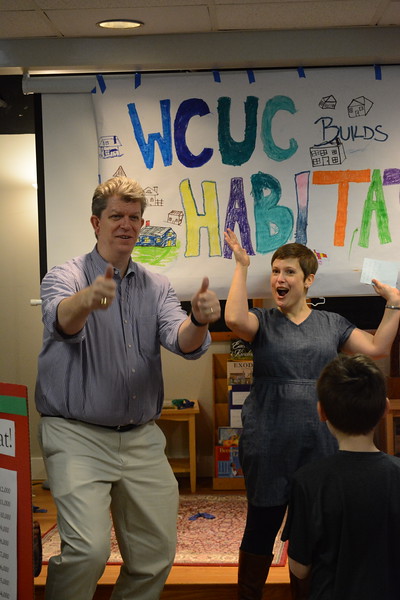
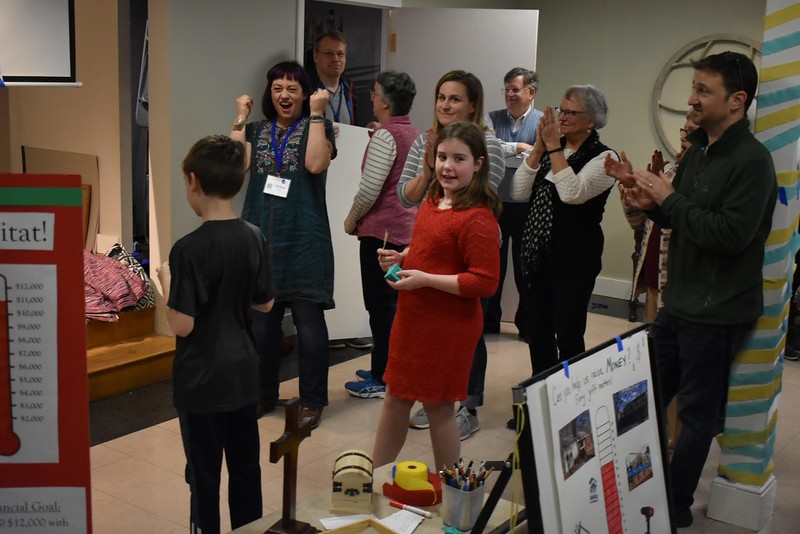
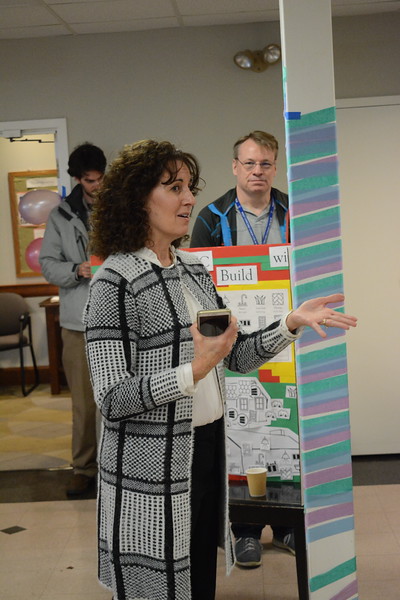
Habitat Development Director Kim Trainor was there… 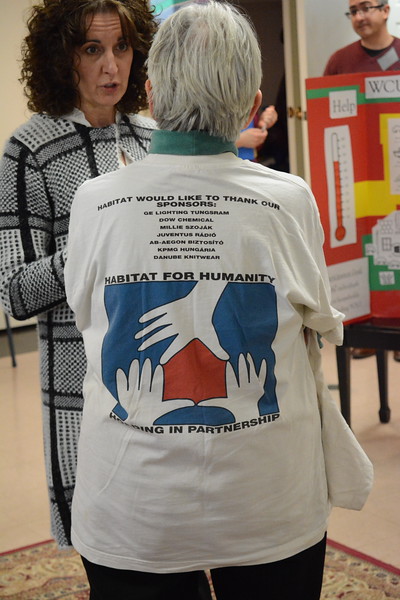
With old friend and multiple Habitat T-shirt owner, Constance
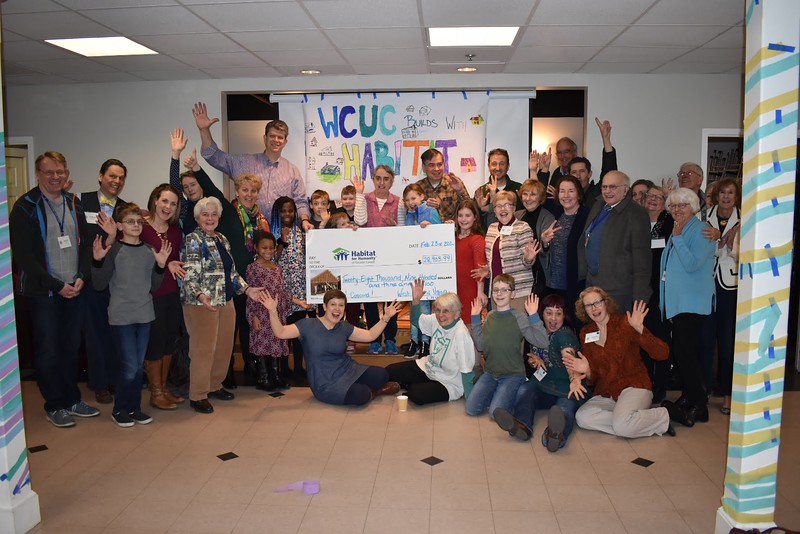
Look what we can do together! 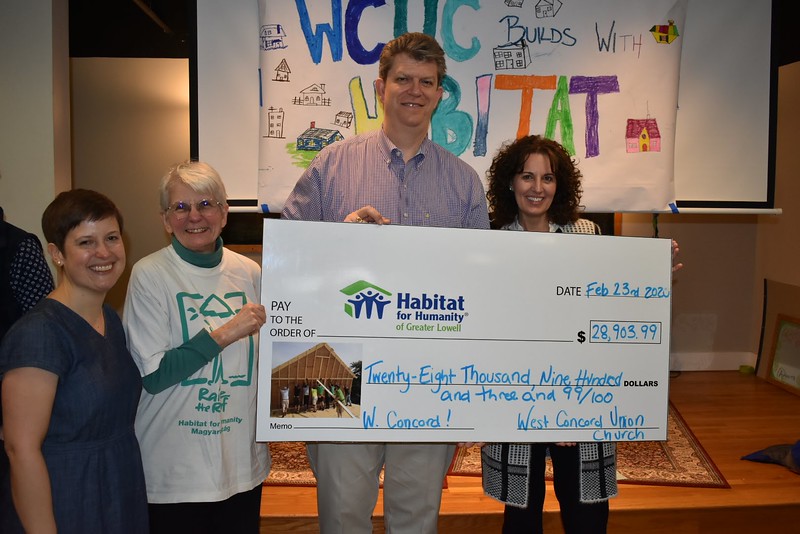
Celebrating Our Renovation

Back in 2014 or so, we realized that there were more basic repairs needed on this building than we could possibly afford with the resources that we had on hand. So, we decided to ask some big questions about our building, how it could support our ministry in a better way. Then we launched a capital campaign, as we celebrated our 125th anniversary, to preserve and protect this building, to increase our environmental responsibility, and to support greater accessibility and flexibility in our spaces.
This was a hard process. So many people put in so many hours, trying to figure out: What should we do? How should we do it? How much will it cost? How much can we raise? There was so much to consider, and as many opinions as people, and I for one made plenty of mistakes as we found our way towards some decisions.
This was a hard process. And, we came together and did something amazing.
Today, let us recognize and celebrate that we have a roof above us that works, topped with solar panels that decrease our carbon footprint. There is no longer a hole in the main street door over here, or wood rotting around the glass on Pine Street. We have one main entrance that everyone can use, with an air lock and modern windows that prevent heat loss, and steps that don’t get icy in the winter, because they’re inside. Downstairs we have a kitchen with drawers you can easily open and close, a sanitizer that takes only a very few minutes to run, and a sink someone in a wheelchair can use. Right here, we have a sanctuary where Sunday Fellowship can meet, and prayer station services can be held, and labyrinths can be spread, and stars can be hung overhead, and everyone, everyone, everyone can get to the communion table.
You may be wondering, why am I mentioning all this now? Thank you for asking. This is the year that many of us completed our pledges to that Capital Campaign. We have received, to date, a combined $737,357, faithfully given. And while the church did thank you when you made your pledge, I want to thank you again, now, for your stunning generosity and dedication. You made it possible for us to preserve this building, care for the earth, and multiply the possibilities of our ministry. I hope it is beautiful to you, what we were able to do here together with the help of God.
So let us give thanks for all who have made this era of our building possible. Thank you to Renovation Committee. Thank you to all the givers. Thank you to all who offered their wisdom and forgiveness along the way in our process. And let us give thanks to God.
Congregational Giving Celebration
Thank you for your presence, prayers, and labor to bring this service and fellowship together! It was a wonderful day!
Worthy of Repair
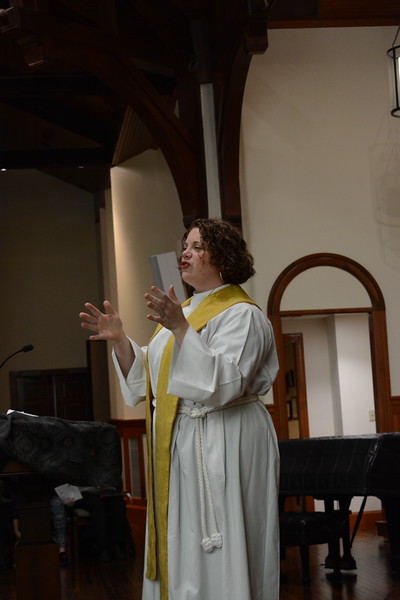
A guest sermon from the Rev. Laura Everett, Executive Director of the Massachusetts Council of Churches. Learn more about Rev. Everett’s mending work here.
Colossians 3:12-17
I bring you the blessings and greetings of the Massachusetts Council of Churches, a network of individuals, congregations and 18 denominations convinced that what binds us together in Jesus Christ is stronger than anything that might divided us. Anything that might divide us. Anything. We are bound together, knit together, sometimes patched and mended together. When so much threatens to tear apart the Church at the seams, the Massachusetts Council of Churches is in the business of repair.
Let us pray: Gracious God, I am bold to stand before your people and proclaim your good word. Send your Spirit among us that we might so we might receive the Word you have for our lives this day, in this place. I claim you again, my rock and my redeemer.
Did you ever feel the power of new clothes? A whole new world seemed possible with a first day of school outfit. My Girl Scout uniform proudly proclaimed with patches that I can tie knots and blaze trail. I think of the black suit jacket my mother bought for me at the store Express in the Rockaway Townsquare Mall in suburban NJ. The shoulders are too big, the fabric likely flammable, but somehow it felt possible that I could be someone different, someone professional, someone who could get a job.
For some of us who grew up poor, new clothes mostly just mean new to us. Those new clothes had been broken in by others, older siblings handing down, or strangers who left behind a butterscotch candy and a crumpled tissue in the pocket by the time we found their old coat at Goodwill.
New clothing, wherever it comes from, signals a change: the white cotton of a baptismal gown, the pale blue silk tie of a wedding day. New clothes for a job interview, a sports jersey, a work uniform, dress military uniform, a jail uniform, a hospital gown, a burial shroud. Often, something big has changed, more than just our exterior when we put on new clothes.
St. Paul turns to this idea of clothing to explain how the Christian community should act. He writes “As God’s chosen ones, holy and beloved, clothe yourselves with compassion, kindness, humility, meekness, and patience.” What I love about this metaphor is the ability to become something new. Put it on. Try on something different. Right before this passage, St. Paul tells the Church in Colossae (koh-LA-see) to “strip off the old self” of its practices of malice, slander and wrath, and to clothe yourself in the new image of your Creator. This is a powerful idea- we can behave differently. Take off your anger choking at your neck like a collar that’s buttoned too tight. Instead, put on the soft, handmade, well-fitting sweater of love.
Clothing would have functioned very differently in the ancient world of this text. People would have had only a few items of clothing- a tunic, a cloak, a belt, sandals. Clothing was precious, which is why the soldiers cast lots for Jesus cloak. When Jesus tells the disciples to “take nothing for the journey,” not even a second tunic or pair of sandals, rest assured these disciples did not have a closet full of extra tunics. When the woman reached out to touch the hem of Jesus’s cloak, she likely felt wool or linen. Clothing was homegrown, homespun, home woven, hand dyed and hand sewn. And so, Paul’s command to take off the garments of your former self and clothe yourself anew is an invitation to major change of that one garment you’ve been wearing all the time. Beloved, if there’s an ill fitting garment you’ve been wearing for too long, you do not have to wear it any more.
To this Christian community in Colossae, Paul is pointing to a new way to be in the world. The thing about clothing is that it’s visible. These are not private virtues, but visible to the world. When we are clothed with compassion, kindness, humility, meekness, and patience, others will see it. They will know we are Christians by our clothes. In a way, yes. This is the promise of the Christian life, in our baptismal gowns, we are all clothed in a new garment. We can wear our love like heaven. We can be different than what we’ve been. We can clothe ourselves in love.
A 19th C Baptist minister in Manchester, England wrote, “It takes a lifetime to fathom Jesus; it takes a lifetime to appropriate Jesus; it takes a lifetime to be clothed with Jesus. And the question comes to each of us… Are we daily, as sure as we put on our clothes in the morning, putting on Christ the Lord?” (Wearing God, p40)
And yet, and yet, even as Paul tells the Church to clothe ourselves in love, even as we’re asked if we’re putting on Christ as we put on our clothes each morning, we know that some of us are not able to dress ourselves. Some hands can’t manipulate fiddly buttons. Some eyes can’t see the tiny clasps. Young and old and everything in between, we rely on others to assist in clothing us, to get to that zipper all the way in the back. And much of what has been draped on our bodies are not the garments of heaven but things that constrain, cover, denigrate and deny.
The writer Lauren Winner puts it this way: “On Paul’s terms, Jesus is not the kind of clothing that creates social divisions, but the kind of clothing that undoes them. Jesus is not a Vineyard Vines dress or a Barbour jacket; He is the school uniform that erases boundaries between people.” (Wearing God, pg 50)
When it’s at its best, Church is where we clothe one another in love. Here is where we put on Christ, together. When we’re tangled up in that sweater that’s too small, when we’re drowning in that suit jacket that’s too big, we come here and get right-sized. We come to Church together so that sometimes, someone else can remind us that however banged up and scuffed up and torn up we feel, we are clothed in Christ. Every Sunday we can come in frayed, and aim to leave wrapped in the garments of God.
And this is why you are giving generously to this church. West Concord Union Church has a beautiful reputation of being a place where everyone, regardless of ability, is clothed in love. We give because we believe in this work and witness. To the Church, Paul writes “clothe yourselves with love, which binds everything together in perfect harmony.” When we’re all clothed in love, we are bound together.
I see how you’ve been weaving in this season. Over the past 5 years, I’ve been learning how to mend textiles. I’m trying to learn with my hands what I long for in my life and in the church: repair. Because so much is broken, and the threads of community and country feel like they are coming apart.
Well- loved clothes wear out. The things we wear all the time become threadbare. Seams start to fray. Moths break in. Places of regular use and friction need reinforcement.
And this is what I’ve come to know, Church: mending is an affirmation. We do not mend what we do not value. We repair what we cherish, what we love, what is precious in our sight. When I patch the hole in my wife’s pants, I’m showing my care for the garment and the one who is clothed by it.
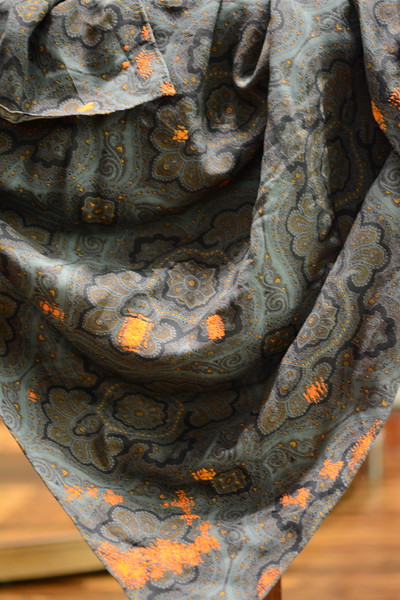
This has become one of my most prized possessions- a wool scarf I’ve been mending for years. All those orange bits are darned with wool. With every stitch, ever act of repair, it becomes more valuable to me, not less. This is what your giving to Church does, you mend. Your repair what you love.
The longer I’ve sat in on my couch with a darning egg and some orange wool and my scarf in my hands, the longer I know this to be true: This is our God, the repairer, the healer, the mender.
God longs for our healing, in our messy, human bodies and in our messy, human community. God longs for us to be clothed in beauty, in compassion, in tenderness and glory. God is a mender.
Maybe it is like this: Maybe God makes a cup of tea and tucks a quilt around. Maybe, God takes our brokenness in her hands and slowly stitches us back together. Attentive, precise, tender. God takes what the world considers disposable and mends so that we might clothe ourselves, clothe one in love, be clothed in Christ.
Mending is an act of devotion, and affirmation of worth. And you, beloved kin of Christ, are worthy of repair. Clothe yourselves in love.
Bound Together in Children’s Ministries
For three years running, the children of WCUC have been eager and enthusiastic participants in our church’s Congregational Giving campaign. Beginning in October, our children learned about our church’s finances – where our money comes from and where our money goes. And we talk about giving. What does Jesus say about money and possessions? How do people decide how much to give away? Why is giving such a good thing? Our children also want to participate in the financial health of our church and experience the gift of giving. So once again, the kids worked hard to create cards and crafts to sell at our third annual Congregational Giving sale, with all the proceeds being offered back to WCUC as our Children’s Ministries pledge for 2020. Because our giving theme this year was “Bind Us Together,” we decided to use yarn, twine, and lots and lots of needles to create our beautiful cards and our woven bracelets. Please enjoy the pictures, which show our crafting process and tell our giving story from sewing to sale! Thanks to ALL who came to support the children’s amazing efforts!
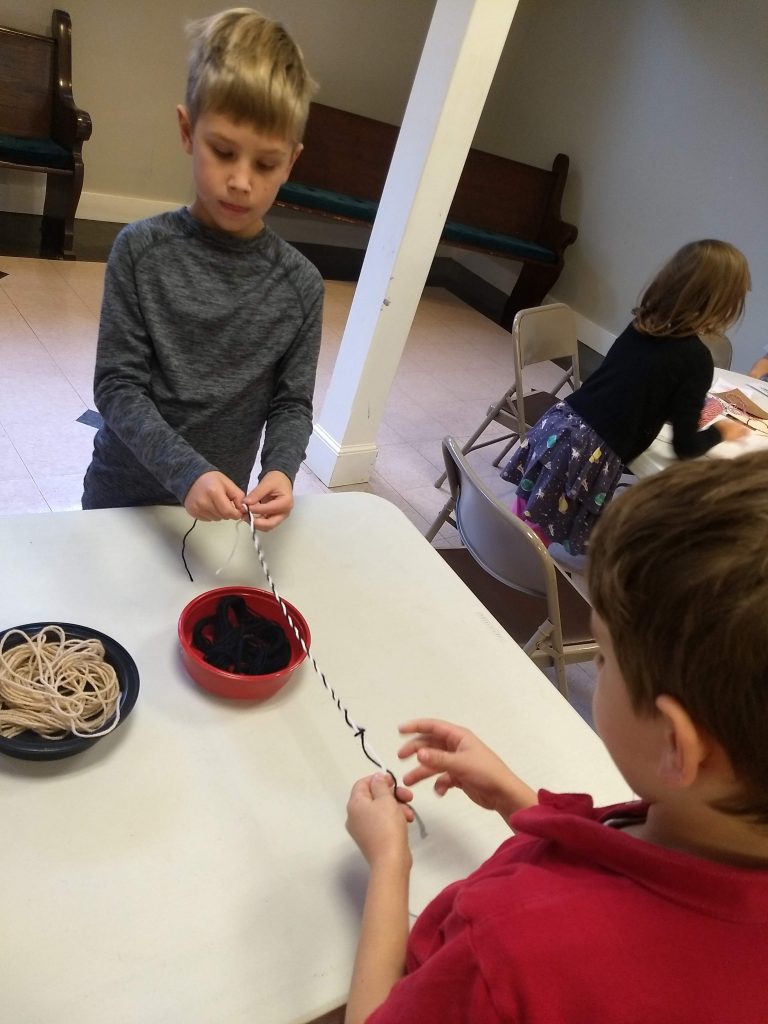
Working together to bind the yarn into a woven bracelet
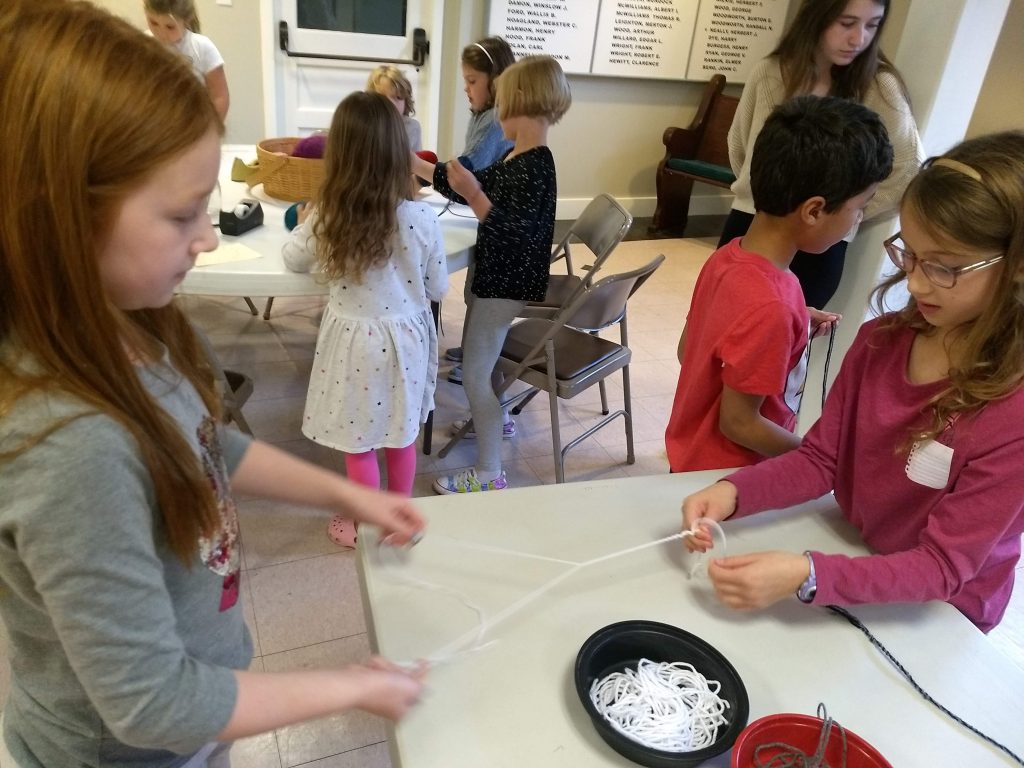
It took a long time to twist it up!
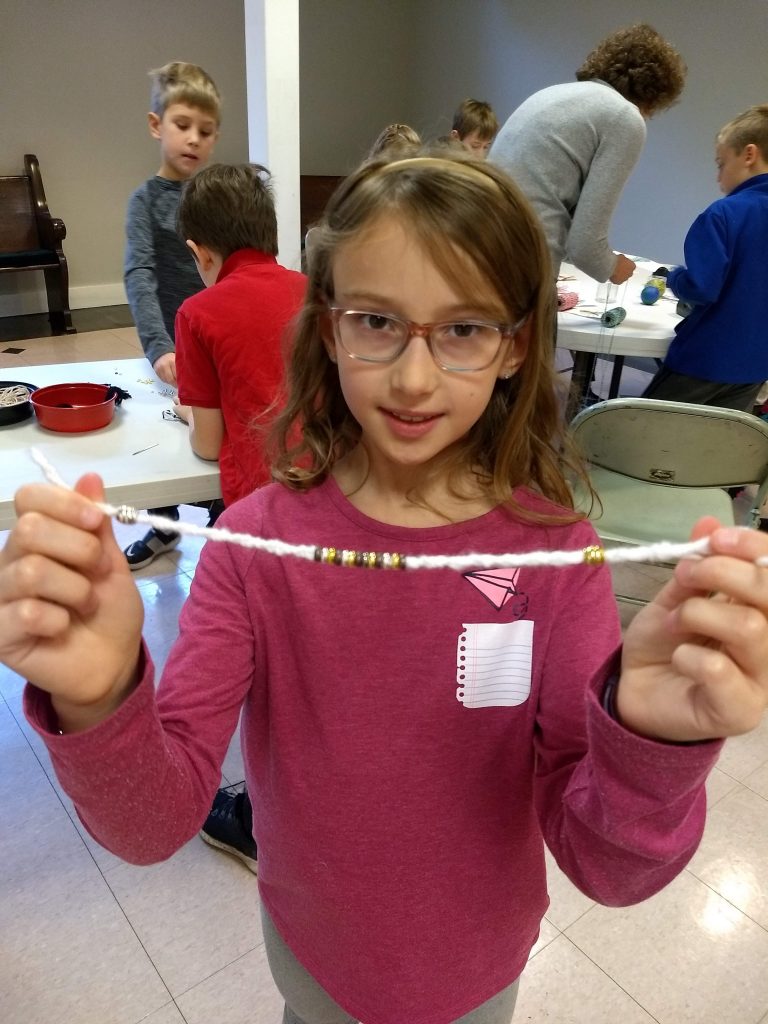
Finished bracelet with beads!
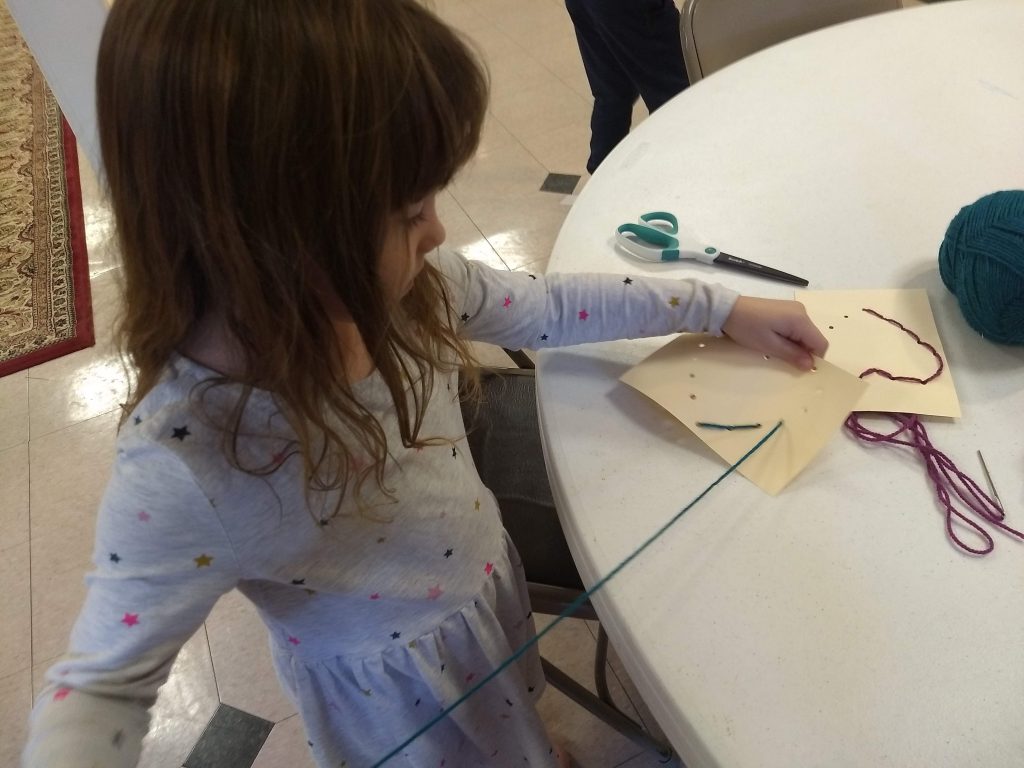
Sewing our greeting cards! 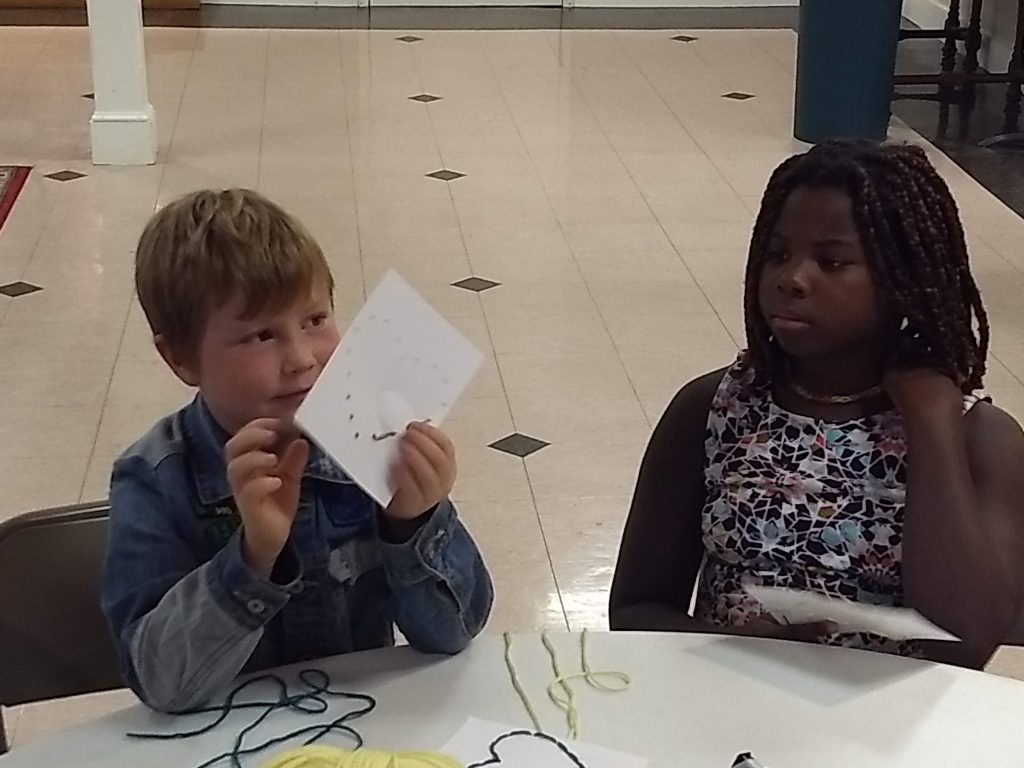
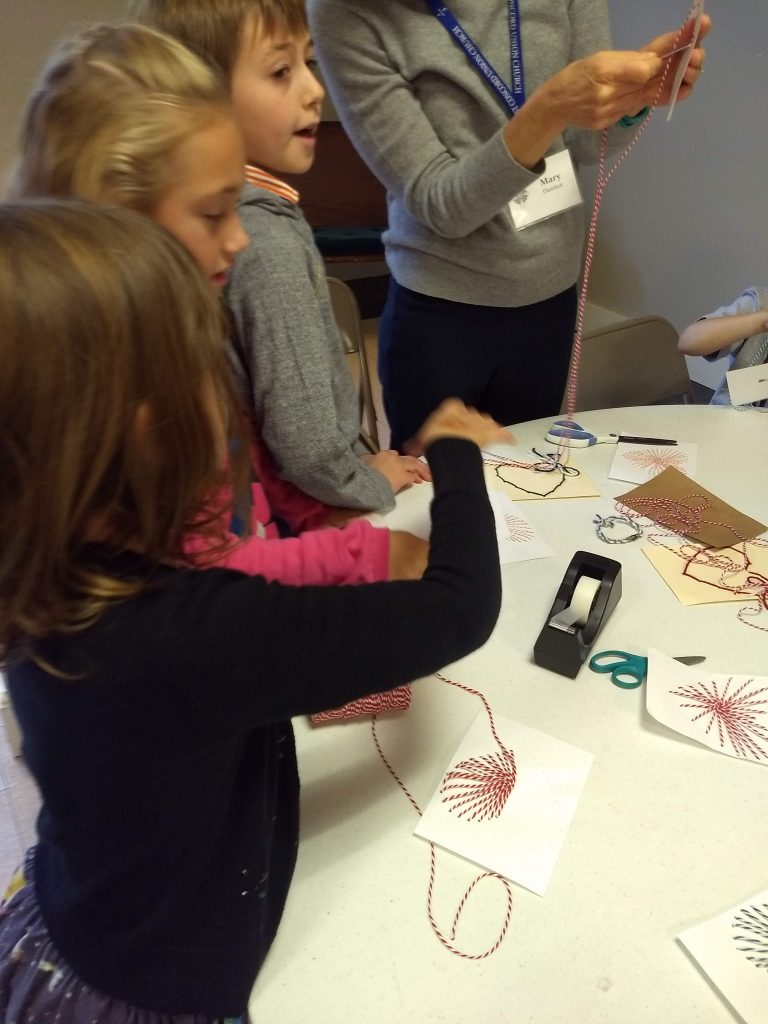
LOTS of needles, twine and yarn
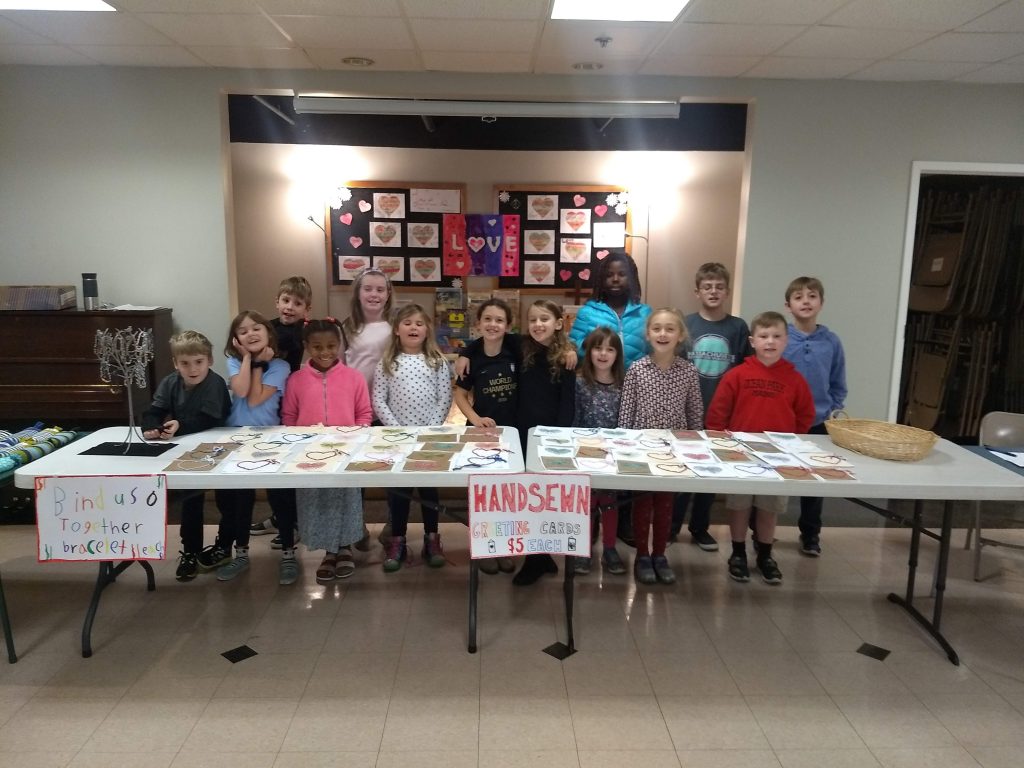
Ready for the sale!
Money Problems
Luke 18:9-14
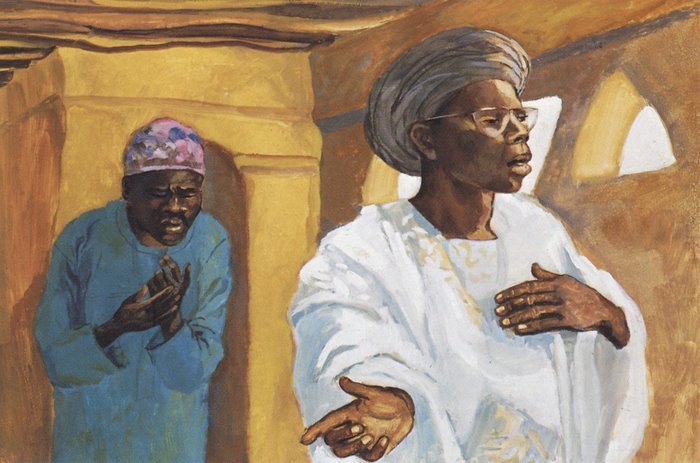
The love of money is the root of all kinds of evil, according to our scriptures (1 Timothy 6:10). I wonder if you can remember a time when money has been the cause of evil in your life: when money has caused a problem for you.
There are so many different kinds of money problems. There are personal money problems; we may experience a conflict between our income and our needs, or our income and our wants. There are relational money problems; differing amounts of money, differing approaches to money can cause tension with family and friends. Money can divide us politically, as we argue about how it should be taxed and spent by our government. Our wealth also divides us socially, and is used to reinforce racial divisions, granting or denying us access to neighborhoods, to schools, to careers. And there’s at least one other sort of money problem. According to Jesus, money can cause problems in our relationship with God.
In the parable Jesus tells today, two people go up to the Temple in Jerusalem to pray. Both are at odds with God because of money. One is a tax collector, a collaborator with the Roman Government. Like Zachhaeus, whose story we heard last week, this person has taken advantage of others, charging them more than what is owed. Through avarice and greed, this person has divided themselves from both God and neighbor.
The other person is a Pharisee, someone who carefully follows the guidance of Torah. This one observes righteous practices, such as fasting and giving away a tenth of their income. Knowing this, we might assume that they are at peace with God and beloved in their community. However, the scripture story is quick to destroy that idea. Apparently this person stands apart from everyone else, and prays what can only be called an obnoxious prayer: “God, I thank you that I am not like other people!” For this person, generosity has led to self-satisfaction and contempt for others. They are also divided from both God and neighbor.
Every year in this season we reflect on issues of money. In part, that’s because we ask you to consider making a giving commitment to the church. But that’s not the whole story. Jesus talks about money all the time – more than just about anything else. According to Jesus, money is one of the biggest barriers that we face when trying to get close to God. We have to talk about money in church, if we’re going to be faithful to the teachings of Jesus.
Everyone’s relationship with money is different, depending on our background, our experiences, and our current bank balance. But most of us struggle somehow in this area. We are plagued by pride or shame, privilege or want, jealousy, or some confusing combination of these feelings. Few of us may have reached the extremes of greed or self-satisfaction illustrated by Jesus’ parable. Still, we may find ourselves fairly mixed-up about what a faithful way might be to spend, to save, and to share what we have.
I must confess to you that this is something I continue to struggle with. Living in Concord, I am oddly aware of all the things that my family doesn’t have: fancy vacations; unlimited extracurricular activities, high fashion, club memberships, constantly new electronics. This environment encourages me to view my own means as quite moderate. It teaches me to protect my income for the use of myself, my children, my retirement. On the other hand, I have only to pay closer attention to the world around me, even right here in this geographic area, to remember that my family’s means are not only sufficient, but extravagant. Just the fact that we don’t need to worry about money (as long as we plan a little) is an extraordinary privilege. Add to that a beautiful neighborhood, an extraordinary school system, the ability to afford daycare, access to good produce; connection to the arts… I could go on and on.
For many years now I have shared my own giving habits with you. I am fortunate to be able to continue dedicating ten percent of my income towards this church. It has become a habit, something that our family’s finances are structured around. Some of you have heard the story of how this happened: how my spouse’s giving spurred me on to greater generosity. I admit to still struggling over how to prioritize my other giving: how much it should be, and where it should it go. Pray for me, as we make the transition out of daycare bills this year, as I continue to discern how God is calling us to be stewards of what comes into our hands.
No matter where we are on the spectrum of wealth, and no matter where we are in our practice of generosity towards others, our practices about money belong in our prayer life. There are so many conflicting messages within and around us concerning money, that only with God’s help can we make some peace in our divided hearts.
But once we open ourselves to God’s help, then the Spirit really starts to move. For the amazing thing about money is that it not only causes problems and divides us from one another; it can connect us, too. Think of what money makes possible, when it is used for good. Money can buy food and fuel social transformation. Money can support the arts and make reparations for injustice. Money can connect us to people right next door or around the world in common cause. And when we give with peaceful and humble hearts, money can also connect us with God, who fills us with power and purpose and joy.
And I have to say: it is a joy for me to use the money that has come into my care to help fuel this congregation, and to witness you doing the same. To hear the stories of those who need this place, and whose lives have changed because of their encounters here with God and with all of you, because of your generosity. In music, care, service, prayer, personal growth, deep sharing: this community binds up hearts, and reaches out to facilitate connections far beyond our walls.
Beloved, how is your relationship with money, right now? Is it a source of stress, or pride, or shame, or all of the above, or something else entirely? How do the ways that you use your money separate you from and connect you with God and your neighbor? Jesus invites us to pray on these things with humility; to seek ever greater alignment of our conscience and our practice, for our own sake, and for the sake of others.
Those two people in the parable came to the temple with their money problems; and we come here, to church; because at least some part of us longs to worship God, instead of wealth. The good news is that God offers abundant grace to all of us: the penniless, and the over-privileged; the generous, and the grudging; the self-satisfied, and those who are ashamed. God offers us grace, and invites us to try again, and again. Each day the next breath, the next choice, a bit more freedom, peace, and gratitude. May it be so for each of us. Amen.
